

Art of
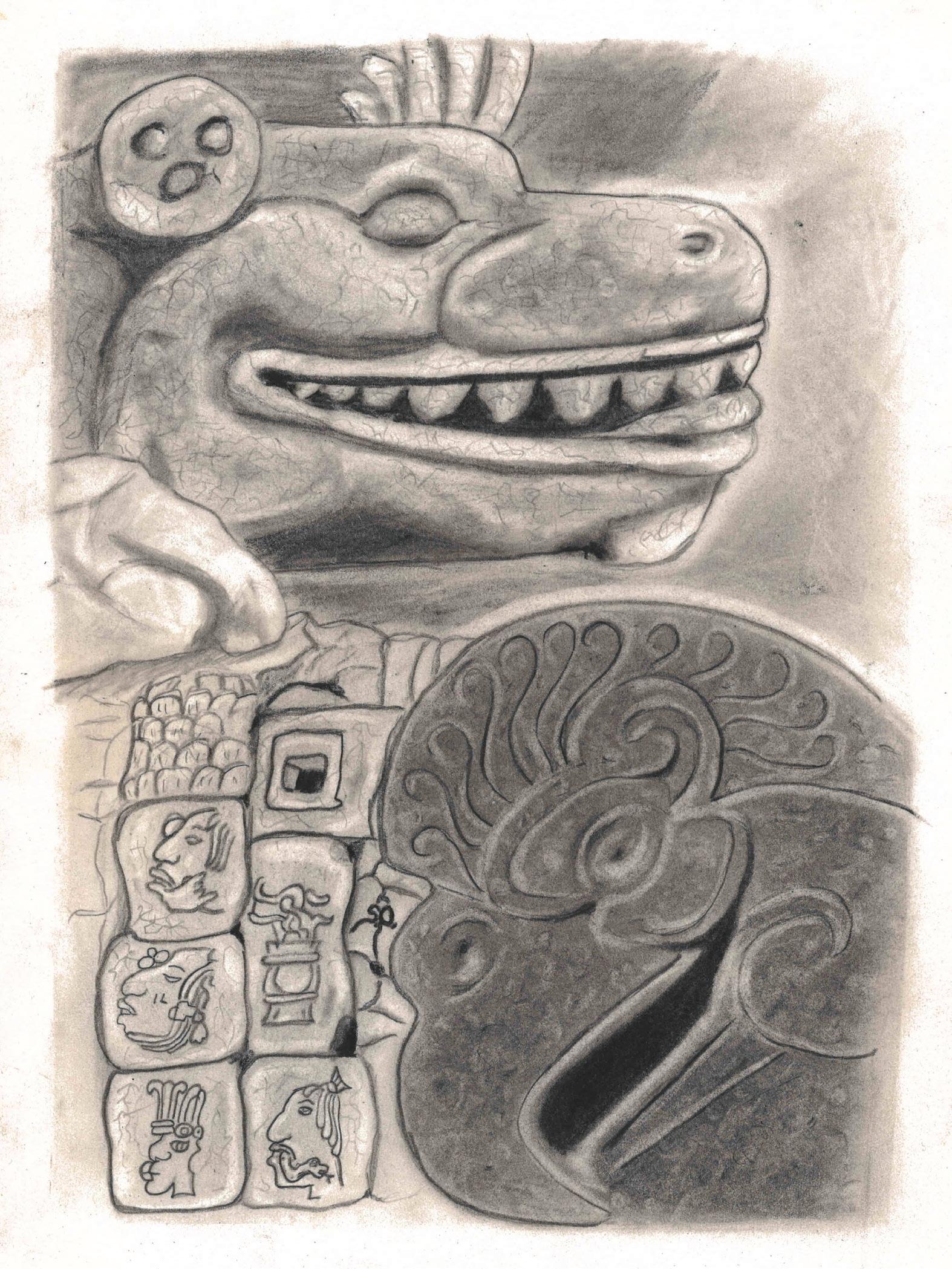
Sergio Ortiz is 2nd place winner of The Javelina Express sketch/doodle/drawing award.
®
Stone by Sergio Ortiz
The Javelina Express Celebrates Dr. Jaya Goswami & Dr. Nirmal Goswami

We celebrate the deep roots that they have put down in Kingsville, we celebrate their kindness and affection, we celebrate the wonderful mentors they have been to many, many young Javelinas, and we celebrate the wonderful friends they have been to the Javelina community. They may think that they are retiring, but surely, they must know: once a Javelina, always a Javelina! Here’s to keeping the Goswamis in our Javelina hearts forever!
ACKNOWLEDGMENTS:
This magazine is a labor of love, the labor of many, with the support of many more. Once again, we are so very grateful to have Ms. Ashley Jannett Navarro back in our team as Graphic Design Artist and Advisor. Ashley represents what Javelinas with talent continue to do after they graduate; but wherever they are, they are always available to help fellow peccaries. And, we are so very grateful to Dr. Roberto Vela Córdova and the Department of Language and Literature for continuing to believe in us and our publication. Without Dr. Vela Córdova and LANGLIT, this second issue wouldn’t be in print. We are also grateful for each other because we are a community with a shared vision; we support each other, listen to each other, share food with each other, and when we come together, we create a thing of beauty.
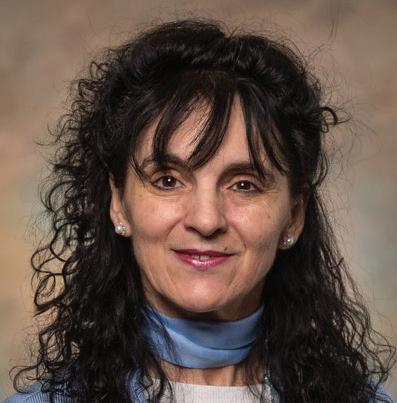
We would like to specially acknowledge the generous support of Dr. Maribel Gonzalez-Garcia, Professor in the Department of Chemistry, and Dr. Rafael Perez-Ballestero, Professor in the Department of Biology. They brought to us the love and generosity of the Javelina community that we know will sustain us for many more issues to come. Thanks to patrons like them, The Javelina Express will continue to bring you the voices of the Javelina Nation.

®
WE ARE BACK
with a new treasure trove of stories, poems, essays, photographs, and artwork by talented Javelinas. When we put out a call for animalthemed submissions, we were a little worried whether we were limiting the scope of this issue. But how the Javelina community answered our call! With this second issue, our magazine continues as a testament to the creativity, skills, imagination, and hard work of the Javelina community and the power of our voices.
The creative work in this issue shows Javelinas full of love for the world they live in. Javelinas care about nature, about animals, and about community. They love their pets, they are working to better the lives of farm animals, and they are the custodians of animals in the wild. Our relationship with animals shows empathy, care, and commitment, all baked on a crispy bed of joy with a dusting of humor.
If you started this ride with us with Issue 1, we are so happy to have you back. If this is the first time you are picking up our magazine, get a comfy seat, grab a nice cup of hot chocolate, and settle in for a wonderful experience. And don’t forget, The Javelina Express will be back next semester with more stories, more artwork, more everything!
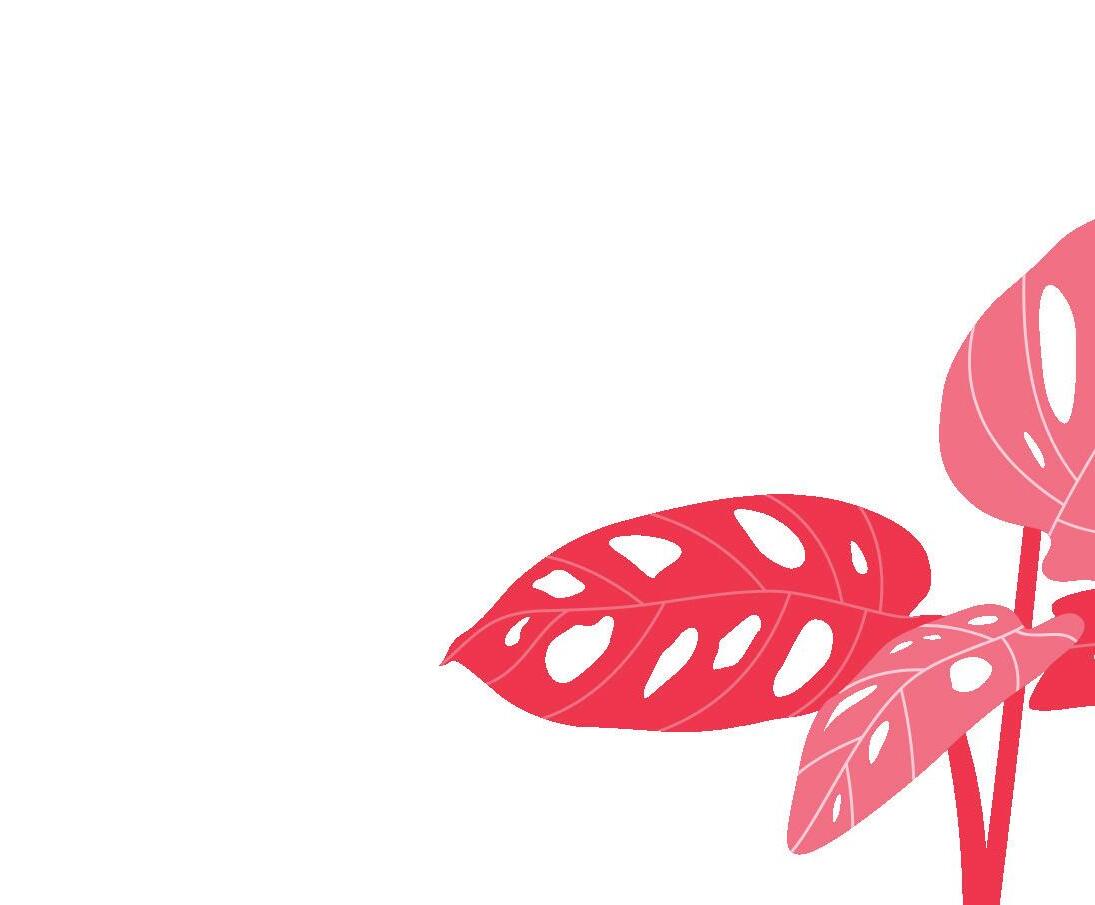
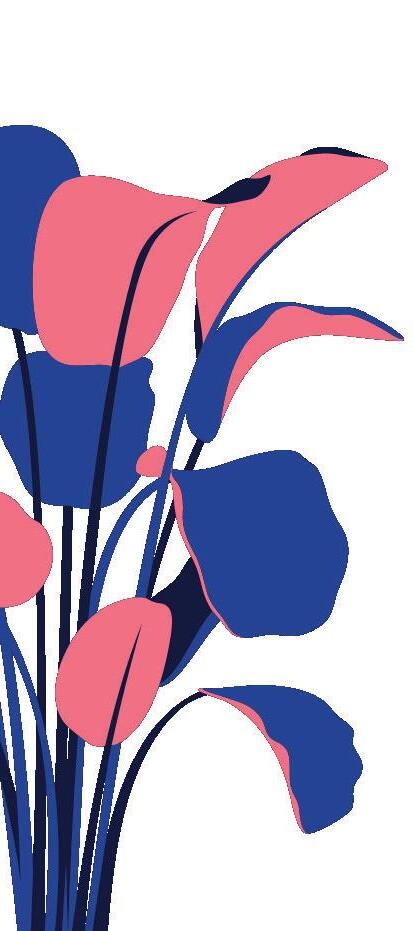
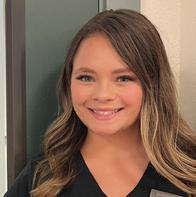
Iris + Maya
by Chaznee Wyrick
On May 25, 2015, the building alarms rang, but Iris was unphased. After realizing that the entire college town that she lived in had experienced historic flooding, and that she had slept through all of the emergency alarms and evacuation warnings, Iris knew she needed a change. She needed a hero. She needed a Maya.
“I was diagnosed with hearing loss when I was seven years old and began wearing hearing aids at age nine,” Iris said. “The cause of my hearing loss is unknown but has progressed to a severe bilateral hearing loss over the last 20 years. Although, I have never felt disabled or held back by my hearing loss, as I got older and more independent, I began recognizing the safety implications of having restricted access to my environment. The flooding event was the catalyst in my decision to proceed with obtaining a service dog. I could no longer ignore the impact that my hearing loss was having on my safety and daily well-being. I recognized the irony that if I wanted to retain my independence, then I needed to get help. My family and friends were all in agreement that in addition to keeping me safe, a service dog would allow me to maintain my independent lifestyle while also providing me with a loyal companion.”
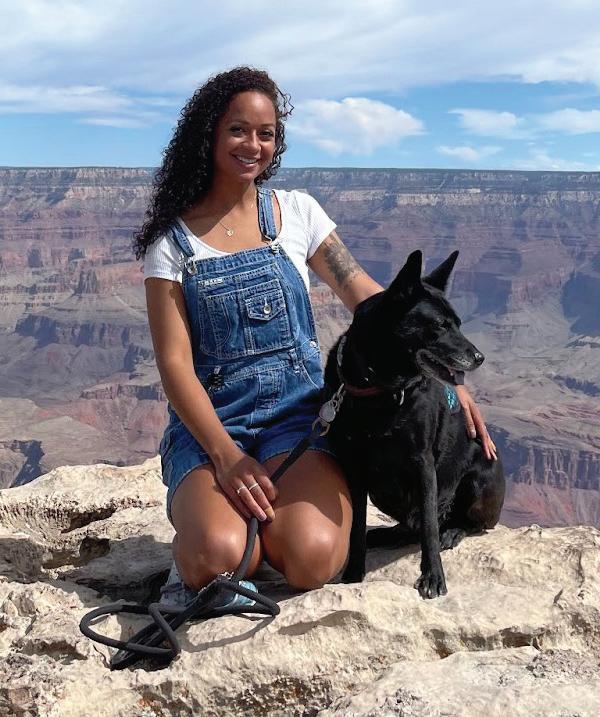
Iris Freeman is an alum from the graduate school of Communication Sciences and Disorders here at Texas A&M UniversityKingsville (TAMUK). Iris is part of the 2018 cohort and is currently working full time as a school-based Speech-Language Pathologist and part-time home health therapist in Austin, TX.
“Growing up hearing impaired, I always knew I wanted to work in healthcare in some shape or form,” Iris said. “I was fortunate to have a mentor who guided me into the field of Communication Sciences and Disorders, and I knew early into my education that practicing Speech-Language Pathology was what I was meant to do. Maya accompanied me during my final year of undergraduate study at Texas State University, before embarking on our graduate school journey at TAMUK. After graduating with my master’s degree in Communication Sciences and Disorders in 2018, I began working as a school-based Speech-Language Pathologist in San Antonio before transitioning to a travel-therapist and working contracts throughout Texas, Colorado, and California. Maya has been right by my side since the beginning of my career.”
Iris officially began her path to Speech-Language Pathology in 2016 at TAMUK with Maya by her side in class and clinicals. Because of Iris’s hearing loss, she knew she needed a companion to help her on her journey. More than a “man’s best friend,” her hearing alert dog, Maya, assists Iris by physically alerting her to common sounds (e.g. emergency alarms, doorbells, telephones, and alarm clocks) and then leading or orienting her to its source. Although she wears hearing aids, Iris has difficulty locating sounds, including cars and approaching people.
“Service Dog Express, LLC., a San Antonio based non-profit, paired me with training in the summer of 2015. We spent several months going in and out of shelters trying to find a dog with the right temperament necessary for a hearing alert dog. Naturally, right when I was ready to give up on my search, I was introduced to Maya and the whole course of my personal and professional life changed forever. I worked with the trainer for approximately six months, and Maya passed her Public Access Test to become a certified hearing alert dog in November 2015. Maya was specifically trained to alert me of emergency alarms, doorbells, alarm clocks, phone alerts, and people approaching me from behind or calling my name. Maya’s temperament is very calm. Her pointed ears stay alert and oriented towards the sounds, very subtly. She alerts me by nudging my leg, initiating eye contact, and then turning or guiding me towards the sound.”
Not only has Maya helped Iris make it through graduate school, but Maya has also been an avid helper in Iris’ professional therapy practice.
“Maya walked the halls of school campuses every day with me. She sat in hundreds of therapy sessions. She served as motivation for shy students working to expand their utterances and endured trying moments with me when she was bitten by an overwhelmed student with Autism during our first year of working! Maya helped me to set a precedent on my campuses that having a disability does not have to limit your goals,” Iris said. “Unfortunately, after seven years of working, including three moves back and forth across the country, two degrees, and thousands of miles hiked, flown, driven, and floated, I had to make the heartbreaking decision to retire Maya in August 2022. We are both still adjusting to the changes and spending time apart.”
Iris and Maya have worked together throughout the years. Although Maya’s working days are over, and she is off to retirement, her impact on Iris remains.
“Maya truly is my best friend, my right hand,” Iris said. “The quality of my life improved immensely when she came into my life. In addition to being my attentive set of ears, my alarm clock, crossing guard, and weather predictor, Maya also taught me a lot about self-love and acceptance. Taking her everywhere with me drew a lot of attention, and it took a while to get used to all of the stares and questions that accompanied our outings together. She forced me to develop confidence in myself and in my hearing loss that I didn’t even know I was lacking, and I will be forever grateful.”
Currently, Maya is enjoying retirement thoroughly. Her working vest remains on its hook in the morning, and she spends her days napping and rolling in the grass.
“My journey with Maya has been one of adventure, love, and loyalty. The diversity of service dogs and their ability to assist humans in maintaining their independence is an option I encourage anyone with a disability to explore.”

Dog’s Love
by Joshua Perez
Since time immemorial, the sound of internal words stands true love carved in the soul stays forever more
Through happiness and suffering, I follow wherever you go. Though a predator by nature, I willingly seek friendship evermore. There can be no doubt it is a friendship at its core. I comfort, I fight, I die, desiring through every hardship to stand beside you. Whatever misfortunate befalls; I remain with you. I, through all states and moods, extend only unwavering love.
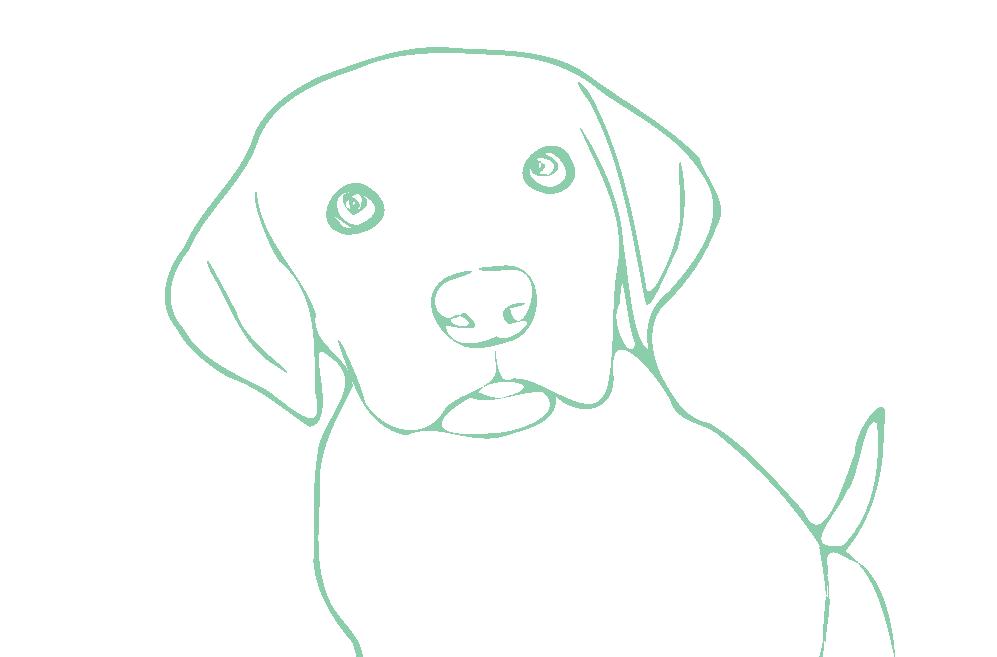
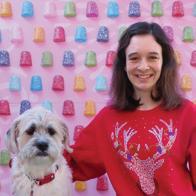
Cody by Lauri Sulewski
One day I walked into a pet store. I did not know that my world would change that day. I did not know there was an adoption event going on. I had gone to the pet store to get dog food for my family dog. As soon as I walked into the store, my eyes fell upon a white and tan shaggy dog lying down in a pen. It was love at first sight! I knew nothing about this dog, but something came over me. It was God’s voice. He was telling me, “That’s your baby.” I just kept hearing in my brain “That’s your baby,” and then, I felt overwhelming love for this dog that I didn’t know.
I walked up to the pen and began to try to get the dog out. He was slow and lazy, so I thought he must be an older dog. When I asked about him, I was told he was a neutered male and 7 months old. I did not care how old he was, or if he was a male or female; all I knew was that he was my baby, and that I loved him. I then adopted him and took him home. I named him Cody. When I got home, I noticed he was sick, so I rushed him to the emergency vet. He was diagnosed with severe kennel cough that turned into pneumonia. He spent 3 nights at the animal hospital on breathing treatment, and then, he went home with me where I continued his treatment. They said most dogs do not survive pneumonia; but survive is what he did. He is resilient and a fighter! He is a survivor! Today, he is currently 9 years old and loving life. He is my fur baby, my companion, my world!
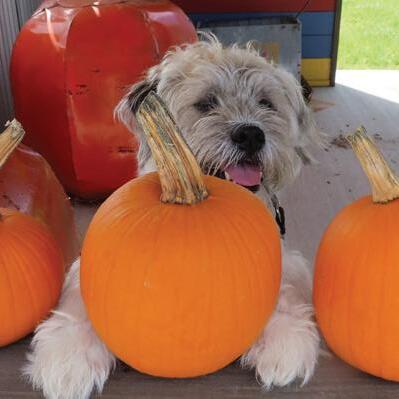

Titanby Luis Cortés
Living and bewildered, consumed with rage I watch all askance from within this cage. White dwarf hamster elicit fear, Boy and girl, they know not my ancient age.
I, creator of this unsuspecting sphere Have lowly placed within my will to steer, Till Night grow old and Day dim tired, Whispering delicious Truth in their ear. Please, commence the Fall that I have Required
And I will provide all that you desired, Leave ever-dwelling fields of joy, To follow the path that you have admired.
Present I with glee at the fall of Troy, I run fast my wheel and demure with coy Subjection to these fools, my present toy Sleeps while I all night continue to ploy
Roots
by I. J. Rivera
It is not uncommon
To find old woodsmen
Alone, unchecked
Rarely visited
Rooted to the floors in their seats
Or beds
Or toilets
Or wherever they spent their last painful moments.
Rooting, you see, is not unheard of.
Old wives’ tales will warn you
To be wary of those trees that grow overnight.
To be cautious of the sharp leaves that cut bare skin
To be careful of the pointed thorns that grow on the branches.
Even a splinter can start the rooting
And once she starts, She cannot stop.
Rooting happens slowly
At first.
Achy joints
Stiff bones
Tender skin
Beige and green undertones.
A little fever here
A little cough there.
Of these little rooting signs
You must beware.
When the fever goes away,
You’ll think you’re in the clear.
Your bones are still sore,
But it’s nothing to fear.
That is, until the other symptoms start.
The cough will get worse
And your throat will start to hurt
And that’s when you start to cough up the dirt.
The leaves will come next
All mushy and brown
Gunked up with dirty water
You suddenly started guzzling down.
The coughing gets worse
All haggard and hoarse.
There’s no point in crying.
It’ll just run its course.
The last part is sudden
Painful and cruel
You’ll never see it coming.
You’re nature’s fool.
One day
When you’re sitting Somewhere stagnant, It will come suddenly.
A coughing fit you cannot stop
Green leaves will spill out.
The tickle in your throat will turn into an assault
And air will stop filling your lungs as you sit on that toilet.
You’ll drop the book in your hand and the pain behind your eye will make you blind.
The branch will burst out and take your eye with it
Brown twig with twirling green tendrils of leaves running down your cheek like teardrops.
The branches will grow out of your mouth
Breaking your jaw as you listen to that radio in the sitting room.
The force will knock your teeth out
Or worse, take your teeth with it
So that they grow into the wood on display for the world to see
How you’ve violated nature
And how she’s violated you.
The branches will burst forth from your skin
Splitting open like some soft, seed-filled fruit to be broken open and shared.
The roots will run down your legs
Erupt from your feet and latch onto the ground.
So, as you lay there in your bed
And feel your throat start to tickle,
Ask yourself if you’ve had any symptoms
Or if you’ve run across any trees that you’d never met before.
Ask.
Forestry is a dangerous job.
Nature has a way of taking back,
That which you would take from her.
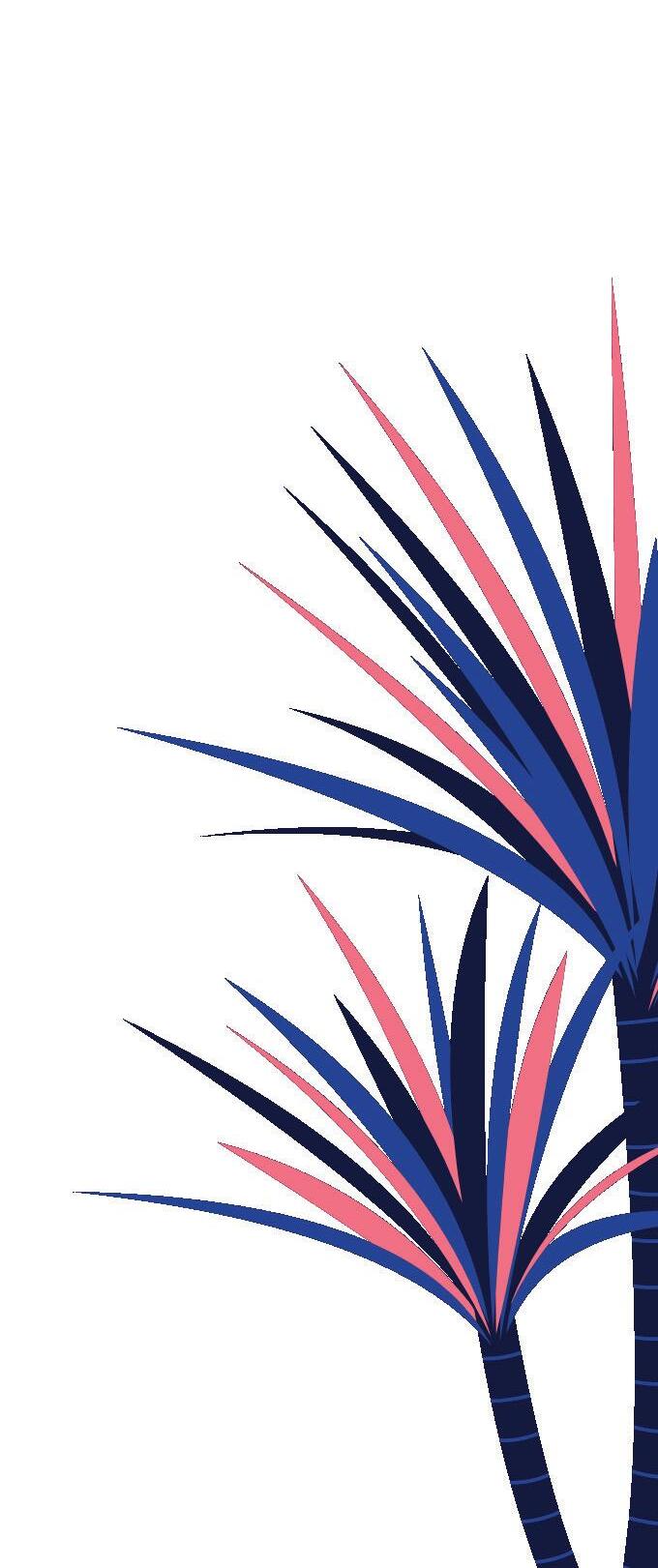
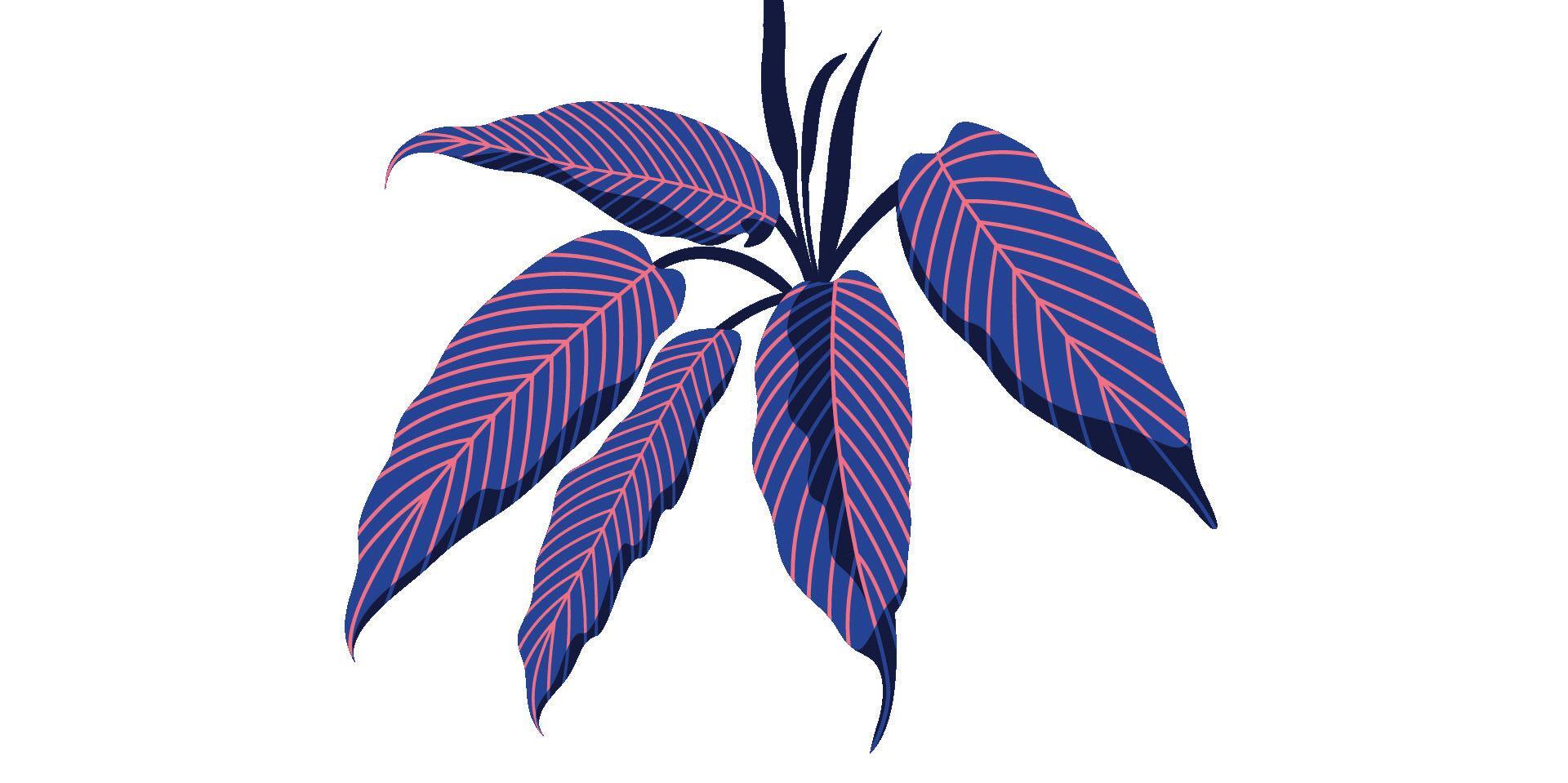
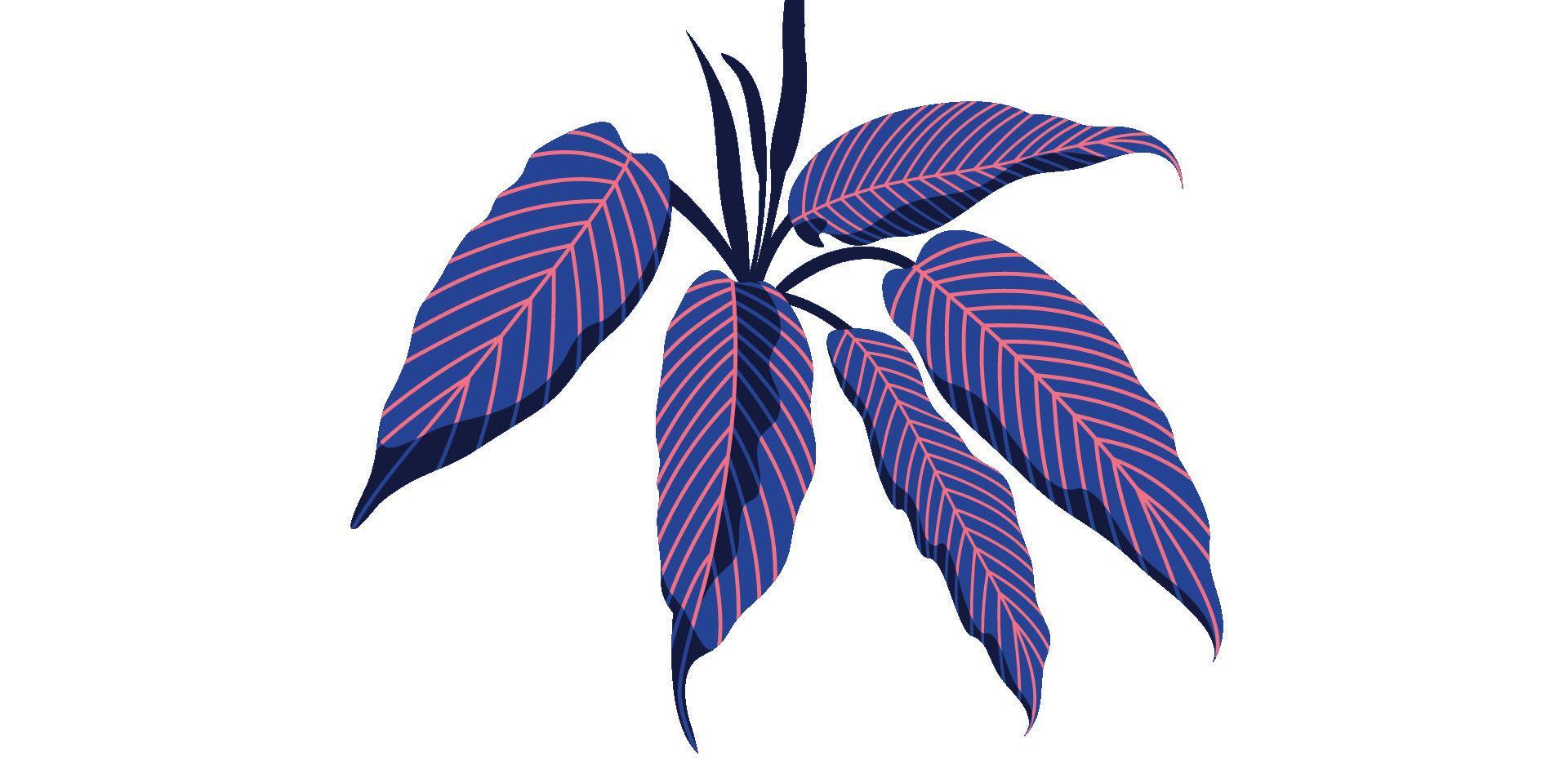
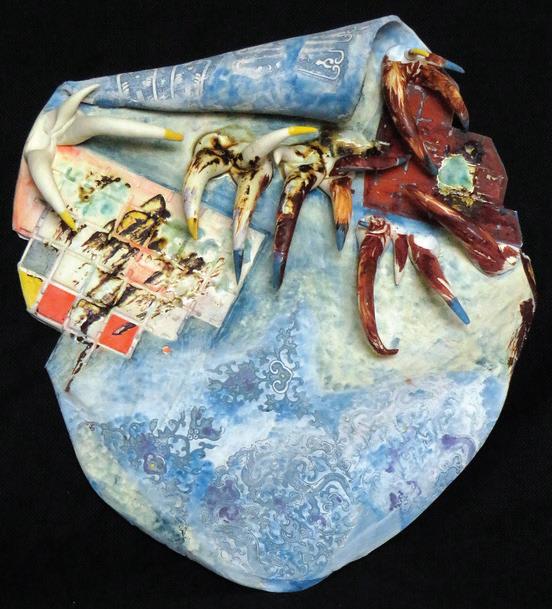

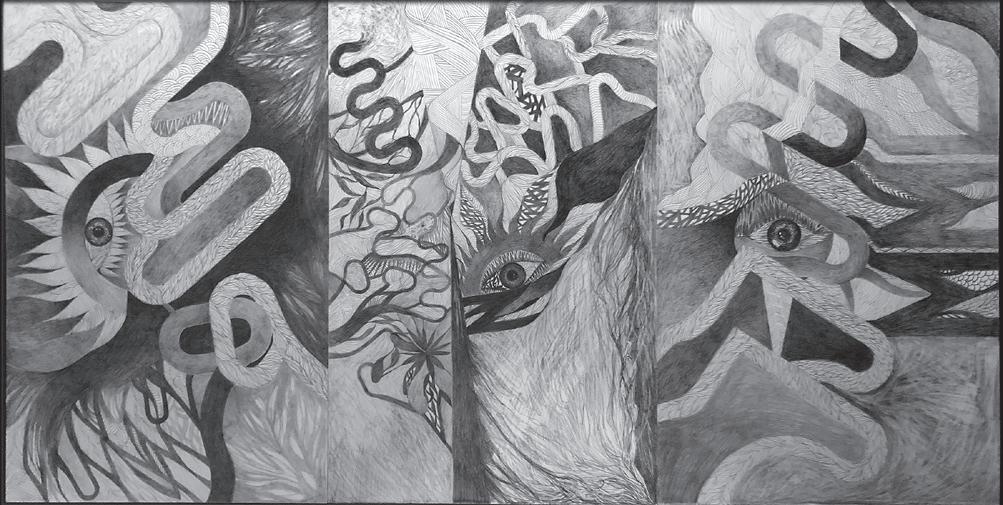


by Rick Miller
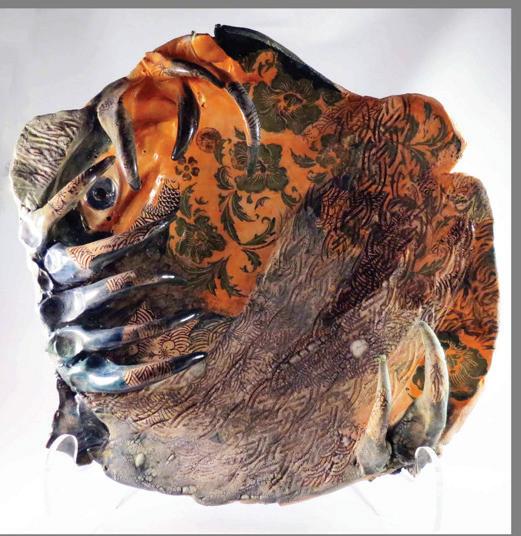
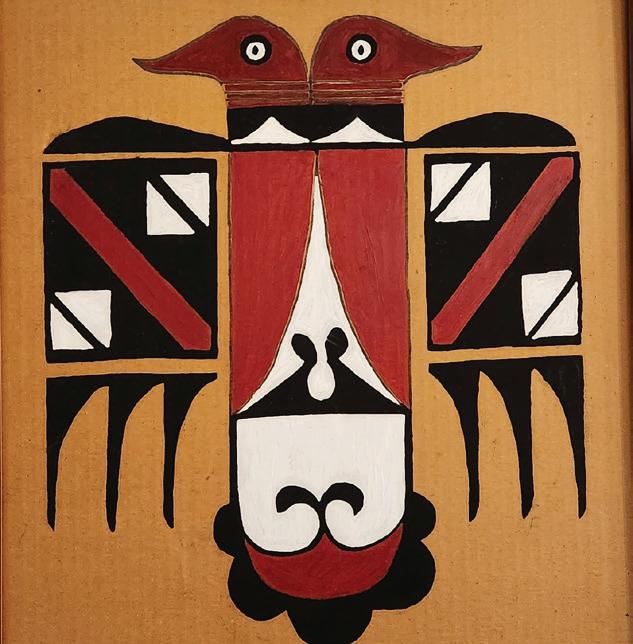
by Fulden
Abuela Querida
por Myrka A. Gonzalez
Una falda hasta el suelo
Un mandil
Y un peinado desordenado
Nunca le han faltado
Mientras cocinaba en sus cazuelas
Los ingredientes conocía “laurel, orégano, comino”
Era lo que me decía
Un libro muy especial
De vez en cuando me leía “¡Dios existe!”
Exclamaba cuando lo abría
En su jardín muchas plantas ha tenido
Platicando, cantando
Así es como las ha mantenido
Un poco raro pero extraordinario
Manzanilla, canela, limón
Su cocina siempre ha olido
Con tés para los males
Múltiples veces ha servido
Nuestros paseos a los arroyos
Me hacían muy feliz
Que la naturaleza es hermosa
Fue lo que comprendí
Usted es la culpable
De mi amor por los animales
Sin su compresión y cariño
Todo esto hubiera sido improbable
Rendirse ante la adversidad
Nunca fue una elección
No entendía tus palabras
Pero ahora comprendo tan bonit a lección
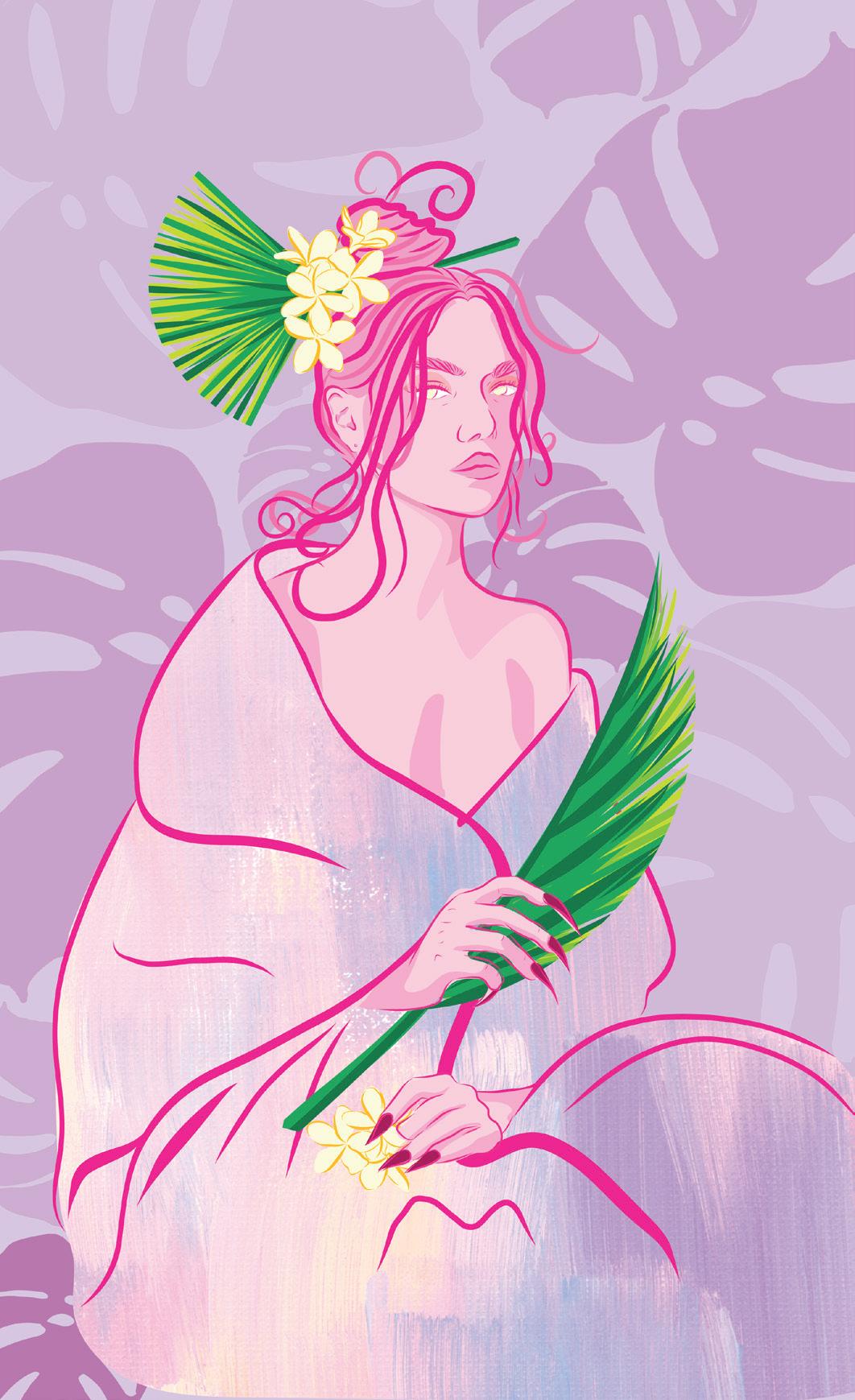
La luna y las estrellas
Por las noches me ponía a mirar
Cada una de ellas
Me enseñaste a apreciar
Todo esto con el tiempo he aprendido
Abuela querida,
Nunca me faltes
A Dios es lo que le pido

Recuerdos
by Ashley Jannett Navarro
A Cat’s Perspective
by Eleanor Sparks
I sit atop the couch, so high, and survey my kingdom below.
My bed sits in a place of honor and allows me to keep tabs on my tribe. I make the rounds periodically to ensure that everyone is safe and sound.
Daily, I check if the humans have offerings for me; they do, as they should. When the humans leave, I grow upset and fret over when they will return.
Much time passes until they finally come back, and I greet them with enthusiasm.
The humans say, “good boy!” and call me a dog, but that cannot be so,
For I am a cat.
I am a cat, am I not?
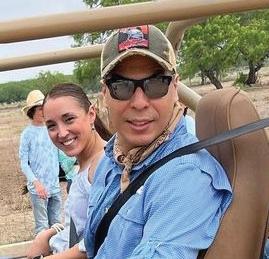
My Tio Killed the Last Chupacabra
by Leonel J. Ramirez
The other night I was tucking my children in, getting them ready for bed. “Tell us a story Daddy,” said my oldest son, Jack. His younger brother, Jake, quickly chimed in, “Yes, tell us a story please, Daddy!”
This had become a nightly ritual for us; I would tuck them in, they would say their prayers, and I would tell them a story, usually pulled from my childhood. Tonight, would be no different. “Ok, but this one is going to be a little bit scary,” I tell them.
“As you know, my dad’s uncle, Tio Leonardo, was a famous goat herder in Penitas, Texas. He died when Jack was a baby. Well, he would spend his days herding goats on the side of the road near the levee in Penitas, and at night, he would bring his goats back to his house, where they would spend the night in a pen.”
“One morning Tio Leonardo woke up, and after a quick breakfast of papas con huevos, he went out to check on his goats. This was all a few minutes after sunrise. One was missing; in fact, it was one of his favorites, Esperanza. Jack and Jake, did you know that Esperanza means hope?”
“Well anyway, Esperanza had a habit of sneaking out. Tio Leonardo, a resilient and stubborn man, mounted his horse, Gustavo, and went out in search of Esperanza. He crossed the levee (this was before the border wall existed) and went in a southward direction towards the Rio Grande River. She couldn’t have gone far. They continued walking. Gustavo’s ears perked up and he stopped, as if blocked by an invisible wall. Something spooked Gustavo, a normally brave gelding. Horses do this thing when they encounter something that scares them; they stop and turn into a mime encountering a fake wall. Gustavo would shuffle left and right and back, but never forward.”
“A stench filled the air. Tio Leonardo urged Gustavo forward again, this time giving him confidence with his whip. He lurched forward and the stench got stronger. Gustavo’s ears perked up and his eyes opened wide as he pranced forward. Tio Leonardo could see something under a mesquite tree not far ahead. It was Esperanza. She lay flat on the ground, legs straight out. Tio Leonardo got off his horse to investigate. There Esperanza lay, two holes in her neck. He had to make sure, he had to check, even though in the pit of his stomach he knew what this meant.”
“He pulled out his old Buck 110 pocketknife from its dried and dusty leather sheath. The blade was thin and scratched from years of hard use, the point chipped off long ago. He sliced her throat, and sure enough no blood came out. Textbook Chupacabra! ‘Pinche Chupacabras,’ he muttered. He knew this day would come, as reports of Chupacabra sightings had started getting closer to his home the past few months. The Chupacabra now knew there were goats in the area and would be coming for his soon, probably even
that very night. He mounted Gustavo and galloped home. Gustavo needed no encouragement.”
“Back by the old mesquite tree, where Esperanza lay, the Chupacabra emerged from the shadows, red eyes glowing.”
“Let’s take the story back Jack and Jake, to a few minutes before sunrise. To before Tio Leonardo woke up.”
“The last Chupacabra wakes up, under a mesquite tree in Penitas, Texas, not far from the Rio Grande River. Nearby, lay a dead goat, blood drained. The last Chupacabra is named Cacto. Cacto is large, easily over 120lbs. Instead of fur, he has thick scaly skin. He walks on four legs but can stand on two when needed and has large sharp teeth and long claws, both perfect for tearing and ripping. Cacto is also old, sickly, and weak, and he knows his life will soon come to an end.”
“Cacto remembers when he was a youngling, left abandoned under a prickly pear cactus, when a pack of coyotes adopted him and raised him as their own. He remembers before the disease came, when he had a thick coat of fur and would chase down jackalopes and even larger game like deer. Cacto was already old when he got the disease, past his prime. He wasn’t quite sure where he got it, but he thinks it may have been caused by polluted water he drank from the Rio Grande, or perhaps, it was the sick jackalope he ate, or maybe, he was cursed by La Llorona. At this point, did it matter?”
“When the sickness came, he knew he had to leave his pack to keep them safe. First, his fur started falling off in clumps, then he got bloated and weaker. Finally, his skin got thick and scaly. He hastily said goodbye to his pack and crossed the Rio Grande, almost drowning, just to distance himself and protect his pack. The last thing he wanted was to get them sick. He arrived in Penitas late the previous day and lay under the mesquite tree to rest.”
“Sometime late last night, a goat wandered into his camp. His pack had one unspoken rule: stay away from men and their pets. That was the secret to a long life. But Cacto was tired after crossing the Rio Grande. He was weak and sickly from his disease. It was that goat or starve. And goat was easy prey. Why not have one last good meal? He waited for the goat to get near, then sprang, latching his razor-sharp teeth on its neck. The goat stumbled and fell. Cacto had his fill of warm blood. Normally, he would eat the juicy meat of his prey, but he didn’t quite have the strength to do that. Blood would have to suffice.”
“He knew the man would come. He crawled back into the shadows and waited. He smelled him before he saw him. Him and his horse. He was an old, bloated, and hairless man, not much different from Cacto. The old man found the dead goat. He got off his horse
to get a closer look. Cacto heard the old man mumble, ‘Pinche Chupacabras.’ Is that what he was? Cacto had heard legends of the Chupacabra, a large hairless beast that would suck the blood of goats, but he had never met one. He had also never met his biological parents. At this point, so close to death, did it really matter? The old man angrily mounted his horse and galloped away.
“Cacto was left with a choice to make. He could stay under this tree and slowly starve to death or succumb to the sickness, or he could follow the smelly man back to his home where surely more easy prey lived. But if he did, that man would just as surely kill him. Both outcomes involved his death. He was left to choose how he died. Should he die an apex predator, a warrior like his ancestors, or should he fade into the scorched Texas dirt? To do nothing is to be nothing. It was really no choice at all.”
“So now Jack and Jake, the story skips forward one day.”
“The next morning, before sunrise, Tio Leonardo awoke exhausted and dirty in his goat pen. His 30/30 lever action rifle lay next to him along with a dozen empty beer cans, a dozen spent rounds, and two slaughtered goats. It had been a long, rough night. His ankle and boot were covered in blood, some his own. Cacto’s teeth had torn through his pants and punctured his boot. He could see a trail of blood leading out of his pen going south towards the Rio Grande. Tio Leonardo sees a can of warm beer, the last one unopened. ‘Today is a good day,’ he thinks to himself, pops the tab, and drinks it. ‘Breakfast is the most important meal of the day after

all,’ he chuckles to himself. He slowly rises and limps towards the Rio Grande.”
“Cacto stumbles towards the Rio Grande, his life force draining out of him, drop by drop, through the two bullet holes in his body. He finds a spot under a mesquite tree where he can see the Rio Grande and lies down. ‘It is time,’ he thinks to himself. He can smell the old fat man limping towards him. He can hear the rifle’s action as a bullet is loaded in the chamber. He turns his head, and the two beasts lock eyes. Time stops, if only for a moment. Tio Leonardo lowers his rifle and plops himself down next to Cacto. ‘You got me good, pinche Chupacabra, but I got you better,’ he says jokingly, like old friends. They watch the sun rise over the Rio Grande as equals, as two old men, past their prime, who know they are ancient relics in this modern world. Both born a hundred years too late. Cacto sees the sunrise for the last time.”
“From across the Rio Grande, you could hear the yipping and cries
Un Padre Como El Mío
por Dariana Jiménez
La vida más bella era la tuya.
Tu sonrisa iluminaba una habitación.
Pero la huesuda tenía otro plan.
Mis ojos en la forma de los tuyos, avellana y llenos de luz.
Recuerdo tus canas en tu cabello y bigote bebiendo tu café negro con un pan marranito. Ella lo miraba despreocupadamente.
Recogiendo fresas rojas en el campo. Rojas como tu pecho por trabajar en el sol. El sacrificio para tus hijos.
Sabía que su oficio tendría consecuencias mortales.

Tu piel, dura como todo el trabajo que haz hecho.
Tu corazón grande como tus manos.
Las manos en que crecí.
Tu mundo entero.
Ya mero le toca, murmuraba la pelona.
Un padre como el mío nadie lo tiene. Amado desde esta tierra hasta el cielo.
Un padre como el mío no hay más.
Por fin, muy satisfecha con su cosecha.
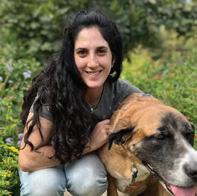
The Burn and The Butterflies
by Rebecca Zerlin
A butterfly dances past my face, trying to avoid the smoke surrounding us; its bright orange wings flutter brightly against the dull, grey smoke in the background.
“You can start lighting again,” a female voice announces on the portable radio, ending my moment of Zen monitoring the flames.
That’s my cue. I get up from the seat on the UTV and search for my lighter. Now, which pocket did I put it in this time? After checking every pocket, and a few of them twice, I finally remember. That’s right! The tiny pocket in the pouch holding the radio. I put my gloves back on and grab the drip torch, ready to resume putting fire on the ground.
It’s approximately a 94-degree August day on a ranch in South Texas as I help with a prescribed burn for this pasture. We’ve been at it for a few hours now and still have more to do. Burns make for long days, as we want to make sure everything is done as safely and efficiently as possible.
“Copy that,” I respond to the voice on the radio.
The voice belongs to my adviser, the Burn Boss. She oversees all aspects of the burn, from making sure the weather meets proper requirements for an effective burn to ensuring the firelines are properly made for safety. It’s a big responsibility, but she’s had over nine years of training and has participated in over 100 prescribed burns in South Texas alone, many as the Burn Boss herself.
I walk to the edge of the pasture that we are burning. A tractor has created a wide dirt path all around the pasture, known as a fireline. All the plant material, or fuel, that will carry the fire, has been removed, and only the bare, sandy ground remains. Ideally, this fireline will keep the flames contained within the designated area for the burn.
I get the flame going on my drip torch and begin walking along the boundary of the pasture, setting fire to the grass on the edge of the fireline. This is to keep the fire from blazing out of control. We strategically start the fire, making sure the flames will be creeping into the wind to ensure the wind won’t push the flames too fast and out of control. This is known as backing fire; it will slowly creep and burn up the plant material in the plot. Now, when parts of the fire are pushed by the wind, the backing fire will ensure there is no more material to burn up, and the flame will put itself out.
Why are we even burning? Who would intentionally light such a large fire?
There are many benefits to burning, especially in South Texas. Burning removes the dead plant material and allows for new plant growth. The ash and burned material can return nutrients to the soil. Studies have shown that this new plant growth is high in protein
making it nutritious for cattle and wildlife.
The purpose of this burn is research. Caesar Kleberg Wildlife Research Institute has a handful of fire-related research projects happening at this ranch. This burn is just one of many that will occur throughout the year.
“Here’s the weather update,” another voice announces on the radio. The weather is recorded every 30 minutes to make sure conditions are adequate for burning. “Temperature: 93.5, winds: 5.6 mph, and relative humidity: 62.1%.” Temperature, wind speed, and humidity levels are the three important weather components for burning, so we keep an eye on them to check for any changes throughout the day.
The weather is recorded, and the burn continues. Eventually, I reach a stopping point and stop to observe. Volunteers are spaced out keeping an eye on the burn, making sure embers don’t fly into other areas of the ranch, leading to an unwanted fire. Things are calm and the flames slowly crawl, inhaling the grass and turning it into ash.
I listen to the soft cracking of the flames while I drink some water. We have finished burning our side of the plot and wait for the other ignition team to finish. That team has moved ahead and has continued burning so that their flames will be pulled towards ours and meet in the middle of the plot. By the time the two sides of the burn meet in the middle, much of the vegetation will have been burned, again ensuring the fire will go out due to a lack of fuel.
A yellow butterfly appears out of the smoke and flies towards me. “Go on!” I encourage it, pointing to where it should fly to avoid the fire. Another grad student laughs at me.
My graduate thesis project looks at how prescribed burning impacts butterflies, such as this Southern Dogface butterfly. My study consists of 15 burn units, each burned in a different season: summer (like this burn), winter, or not burned at all to act as a control. Every month for 2 years, I return to the ranch with technicians and volunteers to survey all the butterflies in each plot. This makes for long, often hot days, but every so often, there’s a moment, like when we crest a hill, and we can really see the beauty of South Texas grasslands. There is something magical about standing in a research plot on a warm afternoon with the tall grass billowing in the breeze all around you. In spring, the grass is intermixed with bright pops of color from all the wildflowers. Perfect food for the butterflies and other pollinators.
Pollinators are any animal that helps a plant reproduce by moving pollen from a male flower to a female flower. Why should we care about them, especially insects? Pollinators play a major role in pollinating most of the plants world-wide, including over 75% of major agricultural crops. About one out of every three bites of food we take is due to pollinators. But these species are not just important for humans and crops. They also help other plants reproduce, like the
Texas blue bonnet and the native Switch grass, which act as habitat and food for many wildlife species, such as deer.
Over 99% of pollinators are insects, like butterflies, which may also act as food for wildlife species, such as the bobwhite quail. With all the benefits of these pollinators, we are interested in finding ways to help provide better habitat for them. One easy method to change habitat: prescribed fire, such as the one we are conducting today. So, we can use what we learn in this fire study to help manage pollinator habitat.
The plot has mostly finished burning by now, and volunteers are starting to gather all the equipment used and bringing it back to our pump truck. This truck is a relic; they don’t make them like this anymore. This Dodge Ram Magnum v10 is from the 90s and equipped with a 300-gallon tank with hose and a cassette player. Those lucky enough to drive the truck can listen to the fine tunes of one of two cassette tapes: a “prescribed burn day” mixed-tape or the soundtrack from The Lion King.

What’s left of the water is emptied out in the pasture before the drive back to campus. A few of us will stay behind until all the flames are out to keep an eye on things. Most of the group departs while I stay behind with another grad student. We drive around the burn and check on things.
It is getting later in the day, which means there is less butterfly activity, but I still see one or two flitting about the edge of the road. As the sun sets, we leave the pasture blackened and covered in ash, all remnants of flames gone. Within days, there will already be new plant growth; these young shoots will act as food for young caterpillars. We get ready to head back to Kingsville, exhausted and covered in ash and sweat. It’s been a long day, and we’ll be back in a few short days for the monthly butterfly surveys. Fire may seem like a strange way to create new life in a pasture--and it looks bleak now--but as I return over the next few months, I know the new growth will bring the butterflies back to dancing around the flowers again.
Great Plains ‘Grassers’
by Rick Machen
The Great Plains – that broad expanse lying between the Rocky Mountains on the west and the Mississippi River to the east, bounded south to north by northern Mexico and Canada.
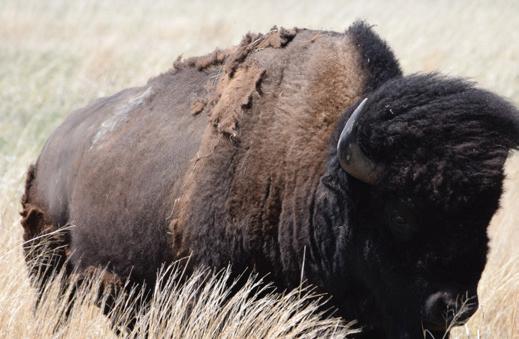
The American Bison – a large herbivore (grasser) that once roamed the Great Plains in vast herds grazing oceans of grass, tromping and soiling what was not eaten, with their hard shiny black hooves disturbing the soil surface and incorporating seeds in farmer-like fashion.
Flora and fauna paired by nature in a symbiotic relationship, each reliant upon the other to sustain a unique and highly productive ecosystem. Independent of human intervention, wildfires, droughts, floods, scorching summers, and bitter cold winters molded and manicured the plains.
Westward expansion of an immigrant population forever changed these Great Plains. The bison herds were unsustainably hunted and harvested for their hides and meat. Domestic herbivores including cattle, sheep, goats, horses, and mules came with the settlers. Fences were built to delineate land and livestock ownership. Towns sprang up. Roads and rail traversed the plains to connect people and towns more effortlessly and efficiently than cross-country movement by covered wagon. Subsequently, portions of the most fertile and arable parts of the plains were tilled, first by mule and then by motordrawn iron. Plow, plant, cultivate, and harvest – a cycle of chores that increased protein, energy, and fiber production to support a growing population of animals and humans.
Today, this region provides food and fiber to clothe and nourish people around the world. If the global population reaches 10 billion by 2050, surely the North American Great Plains will be a significant contributor to their wellbeing and health. Those who now inhabit these plains bear the responsibility of stewardship and natural resource management, striving to maintain the synchrony, sustainability, and productivity once accomplished by Mother Nature alone.
A review of plains ecosystems around the world reveals nature’s utilization/management blueprint contains a variety of plant and herbivore communities arranged in a complimentary mix. Much of the plains soil, though unsuitable for tilling, is a resilient producer of grasses and forbs that have been subjected to and shaped by centuries of wildfires and weather changes. Large herbivores have long been a vital component of the plains ecosystem, grazing the robust, often mature grasses and encouraging new, more nutritious leaf growth that sustains the smaller grazers. The bison, moose, and elk improve the buffet afforded the deer, antelope, rabbits, prairie dogs, rats, and mice. Harmonious coexistence orchestrated by nature.
In the absence of the bison, cattle have assumed the large herbivore role. Most of the forages consumed by cattle are too fibrous and indigestible to nourish humans.
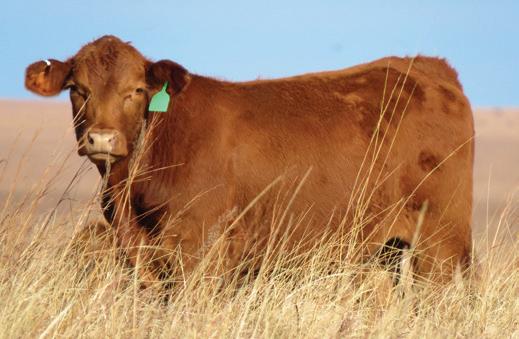
Like the bison, cattle masterfully upcycle solar energy captured by plants into high quality, nutrient-dense protein packed with amino acids, vitamins, and minerals. That protein building takes place
thanks to uniquely equipped beneficial bacteria naturally resident in the stomach of cattle. And in that process, greenhouse gases such as methane and carbon dioxide are released.
Greenhouse gases? Those that contribute to the trapping of heat and raising global temperature? Yes. So, are cattle not doing their part as the large herbivore in our plains ecosystem?
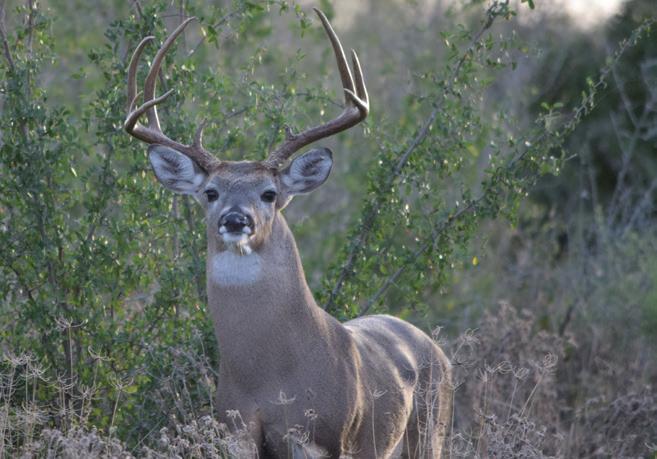
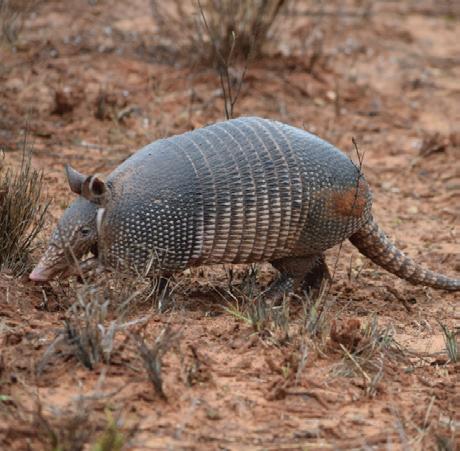
Research indicates cattle are responsible for approximately 2% of direct US greenhouse emissions. But as the largest mammalian residents of the plains, they are doing their part by facilitating sequestration of carbon in the soil. Photosynthesis by plants is the key: taking carbon from the air, making sugars and starches, and storing them in their roots. The carbon in standing, fibrous, above-ground plant material is slow to return to the cycle. Enter the sustainablystocked, responsibly-managed, large herbivore, eating, soiling, and trampling plants. Making manure that is rolled up by beetles and buried. Removing the mature and tough to make room for the new, lush, and nutritious. Facilitating a diet that nourishes deer, turkey, quail, armadillos, javelinas, and numerous other smaller South Texas Plains residents.
Aldo Leopold, the father of North American natural resource conservation, decades ago identified the management tools whose tactful use would result in improved environmental sustainability: the ax, plow, fire, gun, … and cow.
Animal and natural resource stewardship and management are at the core of teaching and research efforts by faculty, staff, and students in Javelina Nation’s Dick and Mary Lewis Kleberg College of Agriculture and Natural Resources.
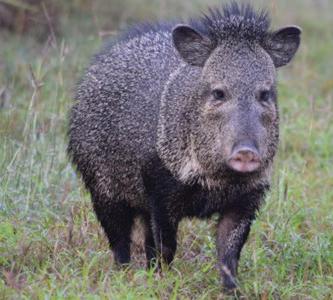
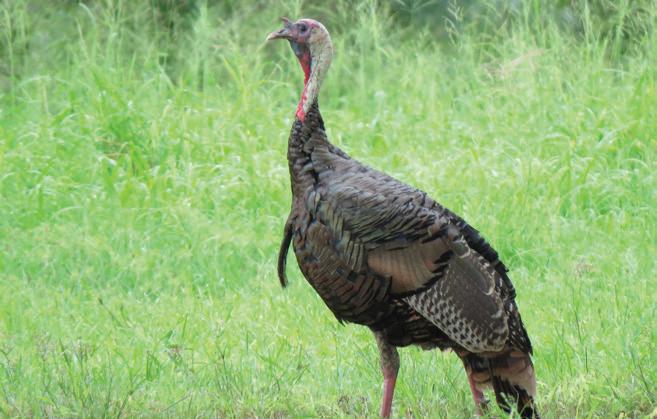
In the college, we share a common passion: managing both wild and domestic “grassers” with the goal of improving environmental sustainability and maintaining the synchrony and productivity of the southern Great Plains.
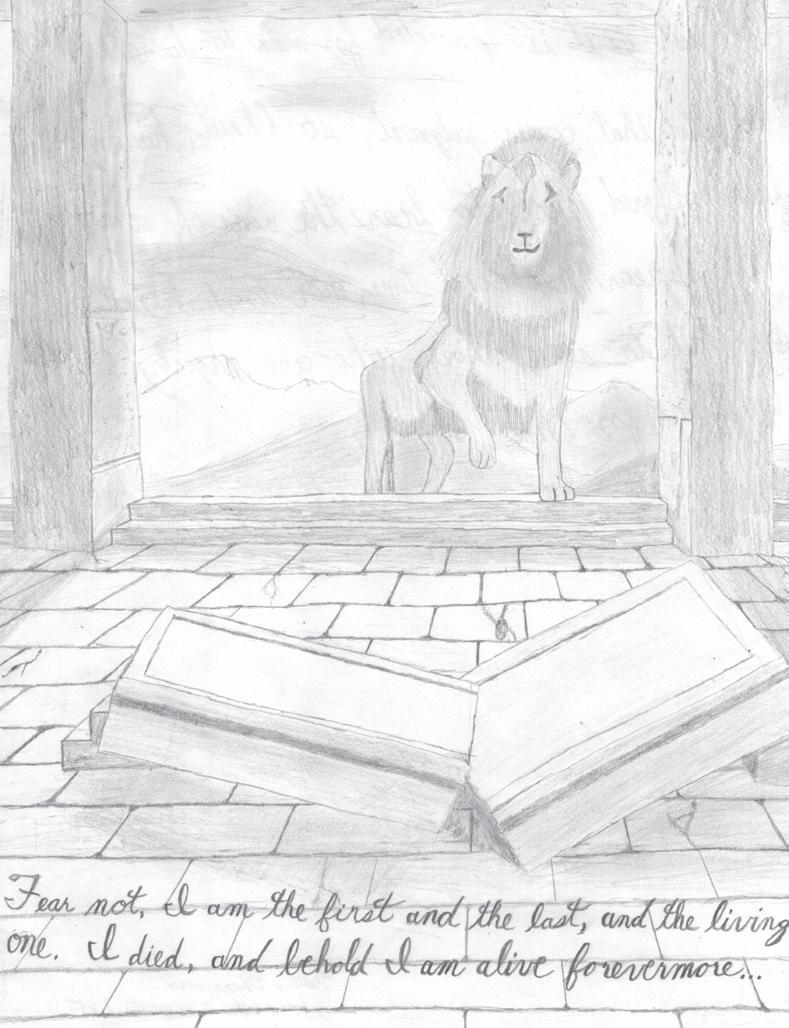

Aslan at the Table
by Matthew Thonsgaard

Spring Comes By
by Agustin Omar Perez
Spring gently tumbles by, Her belly full of warmth and laughter, Yet, rains pour and the sparks fly.
Still, my e’ery thought filled with only her.
Spring is in the air!
Yea, how she dances through the night!
How beautiful and how fair!
See, how my heart takes flight!
Her every word electrifies, Lightning bolts and booming thunder, She never lies, My trust, she’d never tear asunder,
Now only soft winds and gentle sighs, Full of warmth and longing, Now call to me, her calming lullabies, Ease my battered heart, her hymns always soothing.
Now, I lay my head to rest, In her loving arms, Shown in e’ery affection and caress.
My heart is bewitched by her e’ery grace and charm. Now, forever hers, as only time can attest.

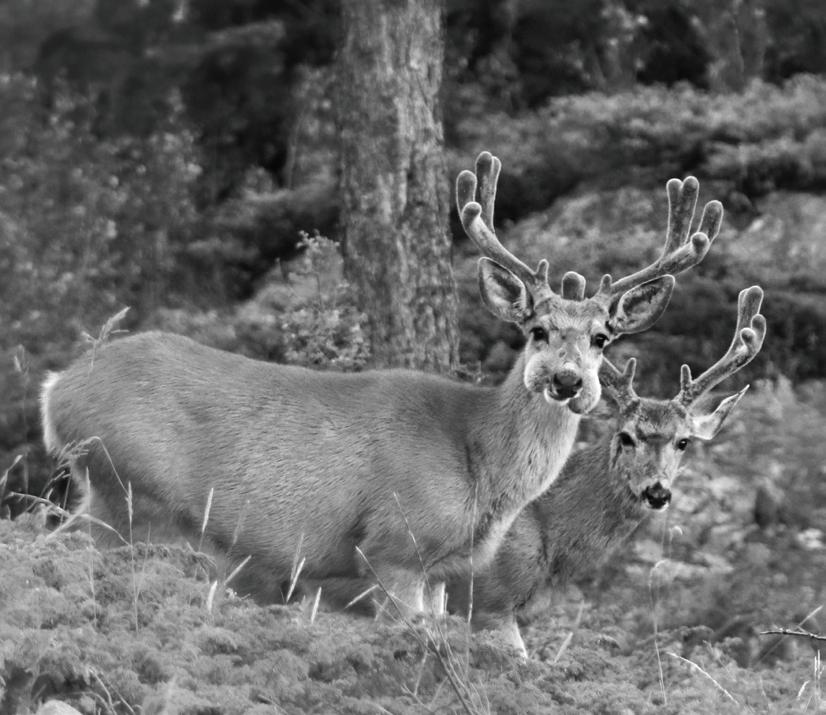
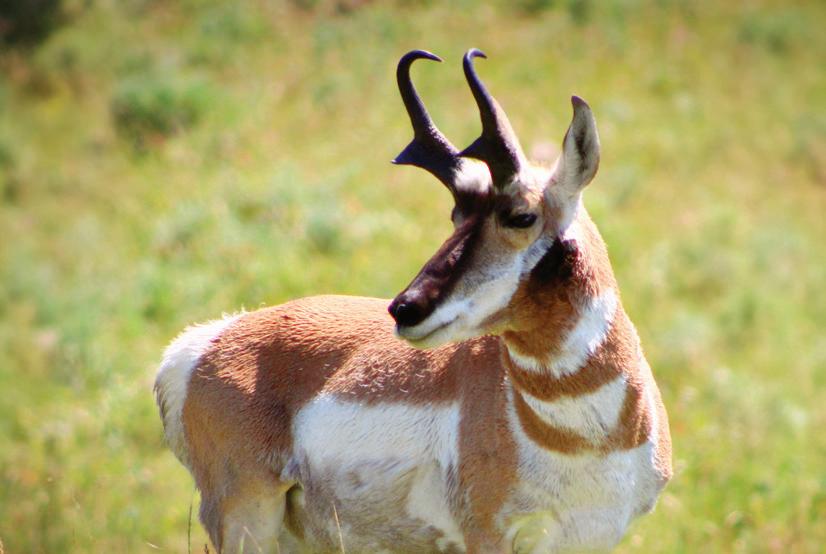
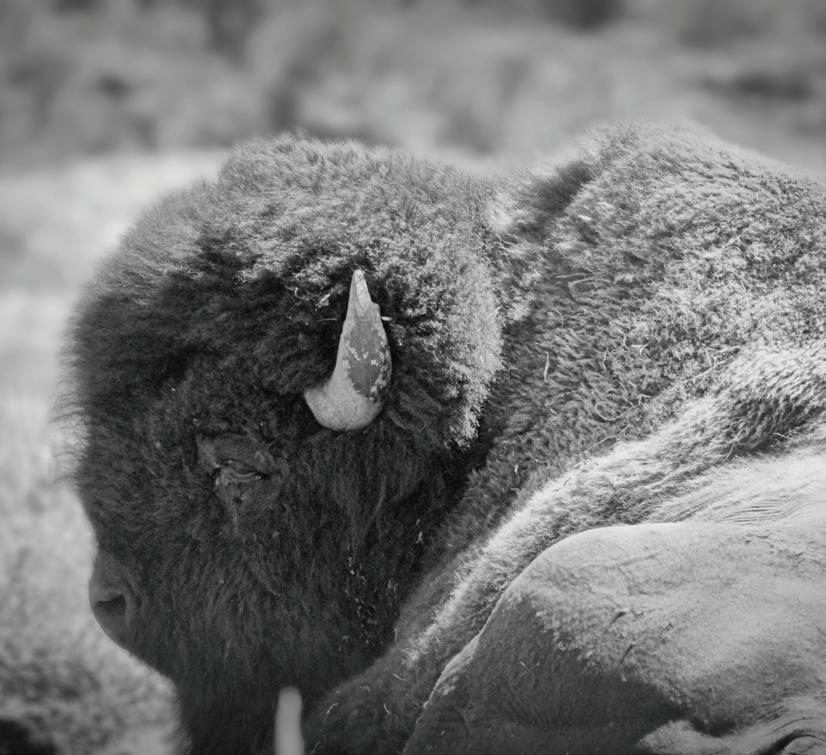
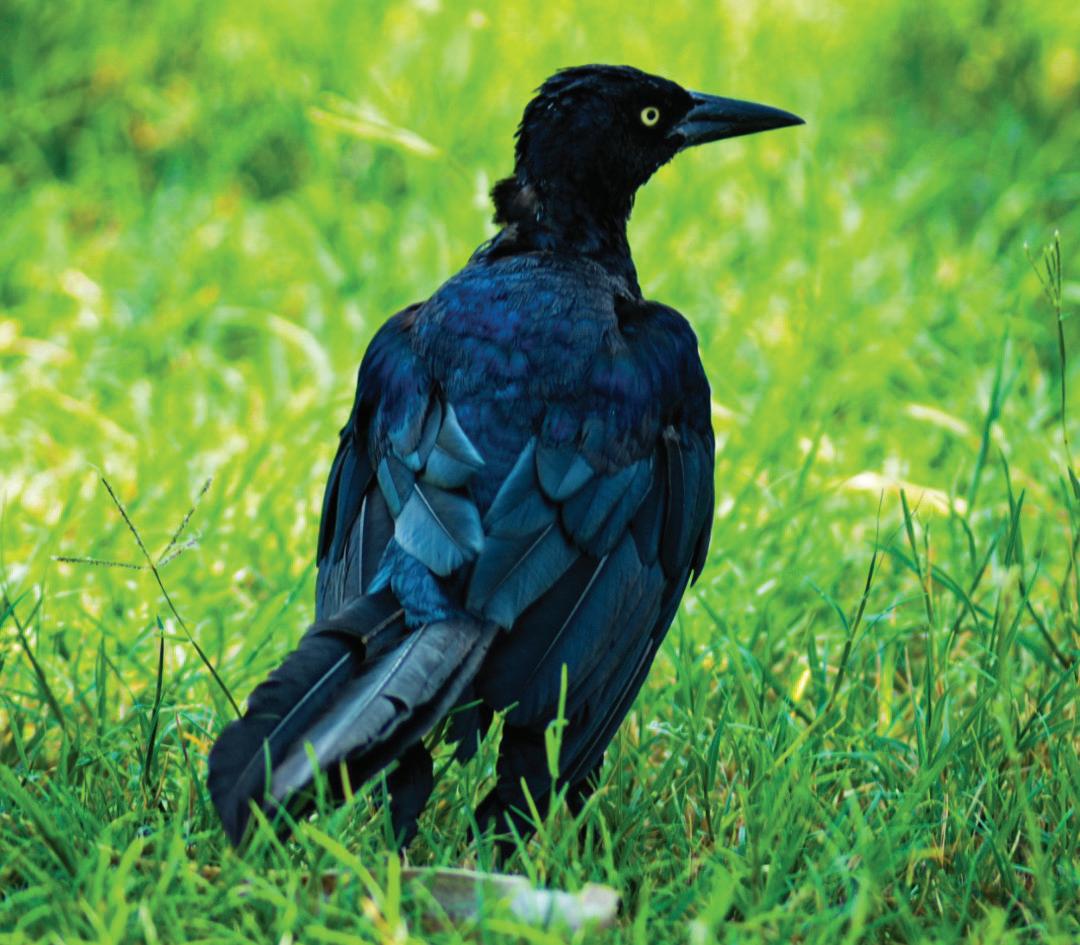
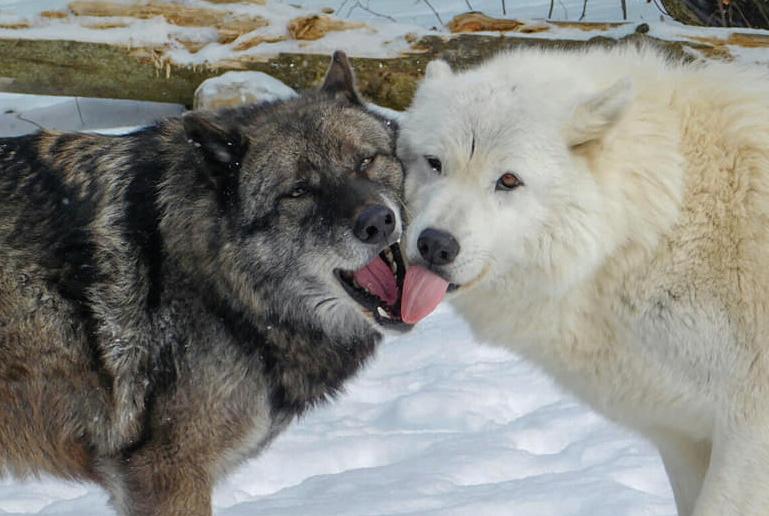
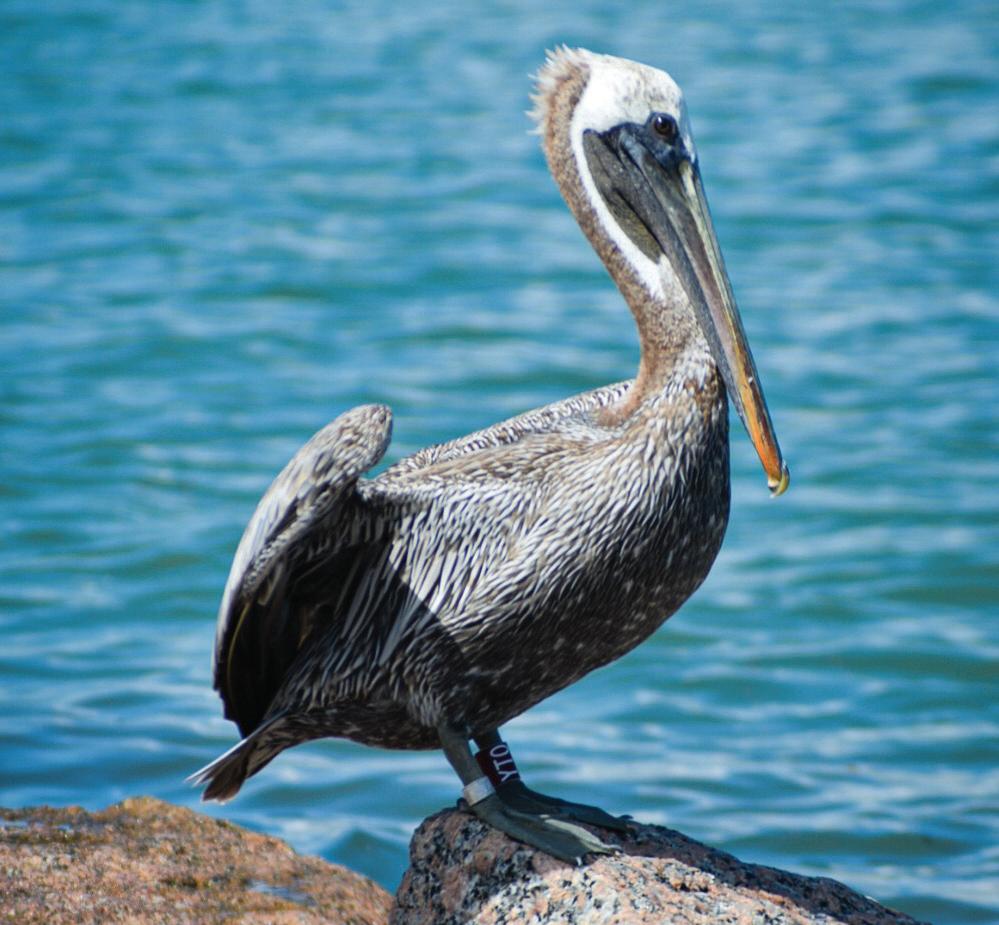
Photography by Danielle K. Martinez
Photography by Sarah Moshier

The Red Bird
by Emma Hall
The amber glow coming through the open window meant it was another day gone. Another day Anthony had spent locked away in his room, closed off from the world and all who didn’t understand. He wasn’t the same as the other kids in his classes. At a young age, Anthony learned to keep to himself after he told someone, who he thought was a friend, the problems he’d been facing. The kid pushed Anthony and laughed, calling him a freak. All the other kids joined in with the teasing and name calling. This led Anthony to seclude himself from the other children his age. As he grew older, it became a habit to hide his face when people looked his way or to shrink into his desk in hopes of making himself smaller. He was rarely seen without a jacket to cover his body from the world. A green one in particular. It was an old jacket with stains and holes all over it, but the reason he liked this one over all the other jackets his parents had tried to buy him, was the drawstrings. They were earbuds so he could secretly listen to music or watch his favorite shows in class. It had been through a lot with Anthony, so naturally he became attached to it.
As the sun fell beneath the horizon and the last light of day was choked from the sky, Anthony lay awake in the cold dark of night, wondering what it would be like if he was different. If he was anything else but himself. Would his life be easier? Would it be better? However, the question that lingered most on his mind was the one that meant the most to him: would he be happy? This was a question he thought about frequently. He was a happy kid up until the age of twelve. That’s when he began to notice that he was different. That something inside him wasn’t right. After that, happiness became foreign to him. It became something that was so far from his reach that he soon lost all hope of feeling its warm embrace again.
There in his bed, Anthony lay drifting into slumber, his mind filled with these questions. The intrusive thoughts that he’d become far too familiar with. As the cold touch of darkness took him, no dream was there to comfort him. A night full of tossing and turning. Restless sleep that was suddenly interrupted by the sound of a sharp whistle. As the teenager’s eyes fluttered open, he was met with the gentle light of the rising sun. Anthony slowly sat up in his bed to peer out the window, surprised by what he saw. There on his windowsill, sat a bird of bright red feathers. The light from the sun seemed to give a soft glow to its brilliant feathers. The bird looked up at him with seemingly intelligent eyes as it whistled its short song, one that Anthony’s grandmother had always said would bring her comfort before she passed. It was only a few seconds, but it was beautiful. A loud string of whistles that started fast but ended with a slow trill. Anthony, like his grandmother, couldn’t help but find comfort in the bird’s song. It was as if, for those few seconds, his worries washed away. The cold stain the world had left on the teenager’s heart was replaced with a warmth that he had not known for a very long time.
As the song came to an end, the bird’s coal-like eyes watched Anthony with a sort of strange intelligence behind them. He stood up from his bed to get a closer look at the red bird. Anthony approached the window with slow, careful steps to avoid frightening the little creature. To his surprise, the bird stayed in its place as the
boy slowly opened his window, letting the cool autumn air fill his room.
“Hello little friend,” Anthony said with a gentle voice as he slowly reached out his hand to the bird.
The bird looked at the outstretched hand for a few moments before it lowered its head and nuzzled Anthony as a sign of trust. The teenager’s heart warmed at the soft touch of its feathers on his fingers. He spent a small amount of time gently rubbing the bird’s head before it looked up at him. The intelligence behind its eyes showed once more before it took flight. Its small red wings carried it across the front yard to the branch of a tree. There it watched Anthony, as if it was waiting for him to follow. The boy watched the bird with a strange curiosity in his eyes. Without a second thought, Anthony threw the old green jacket over his shoulders and rushed downstairs.
As he swung the door open and stepped out, Anthony could feel the crunch of fallen leaves under his bare feet. The gentle touch of an autumn breeze danced over his cheeks as he looked around with surprise. The neighborhood of his childhood home was nowhere to be seen. Instead, all around him were trees with beautiful leaves of red and orange. Sunlight glittered through the trees, sending streams of golden light peeking through the canopy of branches above. Though this was not his home, it felt just as welcoming. The cool breeze carried a strange warmth with it like that of a loving embrace.
“What in the world…” Anthony whispered to himself. “Where am I?”
His eyes bounced from branch to branch until he spotted a familiar bird of bright red feathers. As he spotted it, the bird took flight again, disappearing into the colorful array of leaves.
“Wait!” Anthony called out into the wind, “Don’t leave me alone here!”
Before he could run after the little bird, there was a small gust of wind that caused the fallen leaves at his feet to swirl and fall once more. It was then that a voice broke through the silence of the forest around him.
“You’re not alone,” it said.
The voice was strangely familiar to Anthony, causing him to turn to see where it had come from. As he did, he couldn’t believe what he saw. There, standing behind him, was a woman with long gray hair and two bright green eyes. A soft gasp escaped Anthony as a smile stretched across his grandmother’s face.
“How is this possible?” he asked in utter disbelief.
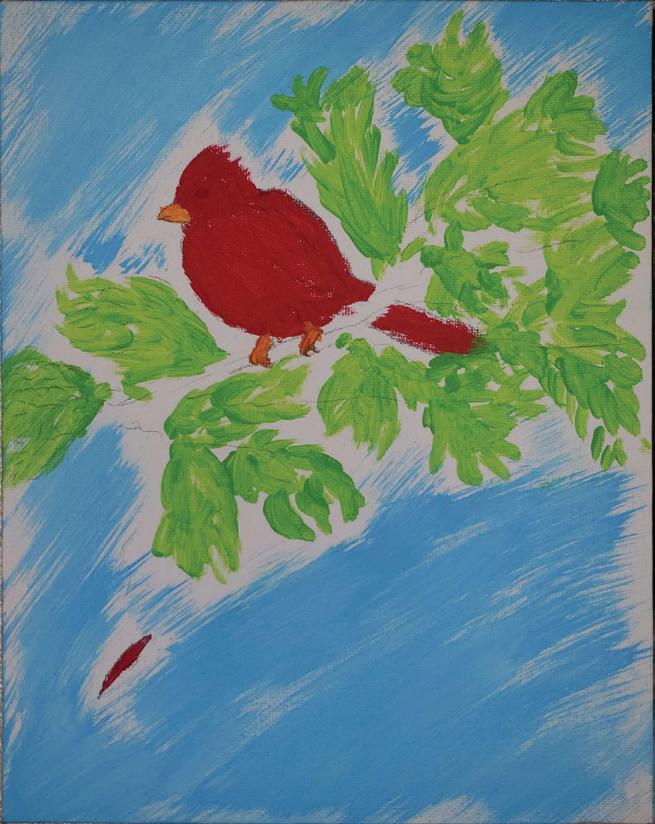

Sping is Near
by Agustin Omar Perez
The old woman gave a light chuckle as she gently pulled him into her warm embrace, something he hadn’t felt in a number of years.
“There are many powers in this world, my sweet child,” she responded. “Not all of them can easily be explained.”
Anthony looked up at his grandmother with a puzzled expression. What did she mean by many powers in this world?
“Am I…” his voice faltered for a moment, scared of what answer may be given, “Am I dead?”
His grandmother was quite surprised by the question and couldn’t help the slight laugh that escaped her.
“Quite the opposite, my sweet child,” she said, “Your life is only just beginning.”
Anthony was relieved to hear her words before she let him go. She took a step back to pluck a leaf from a low branch, twirling it in her fingers by the stem.
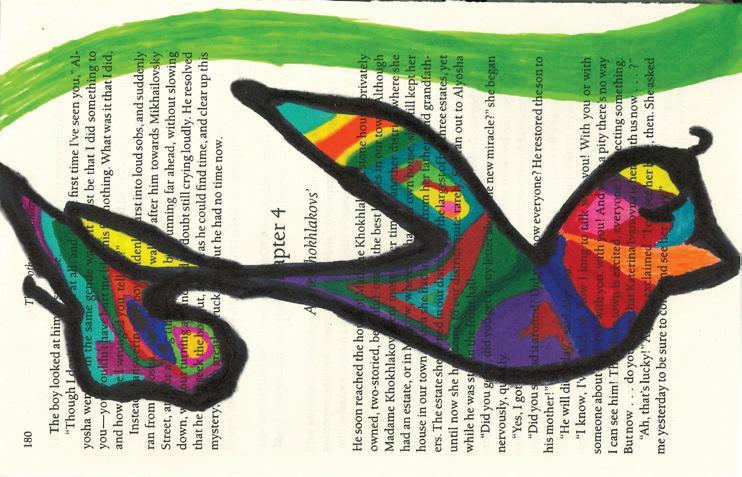
by Ryan Singh Paul

“Why are you here then?” he asked.
There was a short pause as his grandmother looked at the orange leaf before she slowly let it go, letting it drift away in the autumn breeze.
“Because it is the season of change, dear,” she responded with a soft smile, “and you are in need of some change.”
Her words filled Anthony with hope but before he could ask any more questions, she’d gently taken the sides of his face in her hands. Her fingers were warm against his cheeks.
“You don’t need to hide anymore,” she whispered. “True happiness is found within yourself. No matter what anyone else thinks.”
As her whispered voice was slowly replaced by the soft howl of the wind, she leaned forward to kiss the top of Anthony’s head. His eyes closed as she did, before he heard the sound of fluttering wings and the sound of a whistled song. When his eyes opened, Anthony was back in his room. The sound of wind was coming from the open window, but as he walked over and closed it, he saw himself in the reflection. What he saw was a teenage girl, her long hair was of auburn hue and her eyes were bright green. As she stared into the reflection, a smile stretched across her face, something she hadn’t been able to do in a very long time. The girl then turned to walk out of her room, closing the door behind her while whistling the red bird’s song, thus marking the beginning of her season of change.
Ryan Singh Paul is 3rd place winner of The Javelina Express sketch/doodle/drawing award.
La Lechuza: La Sirvienta de la Muerte en la Noche
by Andrea Marie Gonzalez
Era una noche negra, sin estrellas ni luz. La luna no ofrecía consuelo escondiéndose detrás de las ominosas nubes. Y aunque esta noche era oscura y macabra no faltaban los sonidos. Los animales emergían y anunciaban su presencia en la oscuridad con sonidos de otro mundo, sonidos antinaturales. El viento aullaba contra las ventanas de la apartada casa del rancho. Las contraventanas de madera traqueteaban como huesos, y toda la estructura crujía desafiando al viento. No había otras casas por millas, estaban aislados.
La familia de doce se preparaba para el sueño para remediar esta noche inquieta. Sin embargo, no podían escapar de la sensación inquietante que entretenía esta noche. Los padres dieron las buenas noches a sus hijos, y a medida que su linterna se alejaba de la habitación de los niños, también lo hacía la única luz en el hogar ahora oscuro. Las sombras llenaban la habitación mientras los niños se movían inquietas en sus camas. Las mantas protegían sus narices de las corrientes de aire heladas mientras sus caritas se escondían debajo de su comodidad. Los ojos de los niños se abrían al más mínimo sonido, y la vigilancia ansiosa mantenía sus mentes
insomnes.
A pesar de los elementos siniestros de esta noche, los niños comenzaban a encontrar el inicio de un sueño profundo. Sin embargo, un sonido nuevo y repentino prohibía su descanso. Este sonido rodeaba la casa como un depredador rodea a su presa. Al principio, el sonido se asemejaba al sonido de las garras que raspaban la totalidad de la casa. Este sonido resonaba en toda la casa. El sonido subía y bajaba por las paredes, justo encima de la ventana y cerca del marco alto de la puerta de entrada. Sin embargo, después de que los niños escucharon más de cerca, la distinción se hizo clara. Había otra capa de sonido emparejando y siguiendo las garras. El sonido se movía lentamente a lo largo del techo. Era el sonido de las garras pisando y raspando el techo arrastrando las cadenas. Las cadenas y las garras continuaban rallándose a lo largo del techo hasta que se detuvo por encima de la habitación de los niños.
Por un momento, había silencio. Este silencio insoportable sofocaba y envolvía los corazones de los niños. Temblaban con la respiración
FlatBird
contenida y no se atrevían a hablar. Entonces un sonido nuevo y repentino rompió por la noche. Un grito horrible como el grito de horror de una mujer con tonos infernales y animales reverberaba en la oscuridad, amplificado por su poder siniestro. De inmediato, los niños sabían lo que era. Este sonido sin forma y perverso pertenecia a una criatura. Es una entidad maldita y un presagio inconfundible de infortunio y muerte, La Lechuza. El sonido se desvaneció, pero su mancha en la noche permaneció. De repente, desde el interior de la habitación de los niños, una de las hijas menores estaba llamando a sus hermanos, suplicando su ayuda y jadeando por aire,
“El olor, por favor, no puedo soportarlo.” Algunos de sus hermanos se movían rápidamente hacia ella, y otros corrían hacia la habitación de sus padres, pidiendo ayuda y luz. Pisadas pesadas salían en estampida del pasillo, y una bola de fuego irrumpió a través de la puerta de la habitación de los niños. El padre, linterna en mano, levantó la luz en la habitación para iluminar la terrible escena. Detrás del padre había tres niños aferrados al vestido de su madre mientras ella atravesaba el terror para llegar a los niños amontonados en una esquina de la habitación. En el centro de los niños acurrucados, la pequeña hija acostada en su cama respiraba hondo. Cuando la madre se agachó para sostener a su hija, un hedor terrible se encuentro con ella y le picó la nariz. Ella llamó para que su esposo trajera la luz a la habitación. Rápidamente, el padre se acercó, se detuvo detrás de su esposa y miró a su hija. El pecho de la niña apenas se elevaba mientras respiraba, y su piel se puso pálida. La madre sostenía a la niña en brazos cerca de su pecho, las lágrimas le salían de las mejillas mientras lloraba sin sonido.
La familia se quedaba quieta y sin sonido en la habitación con poca luz, y perturbada por el olor a podrido que venía de la ventana
Rowena
by Viv E.
The clock struck 6 in the morning. Two feline eyes shot open and surveyed the room. The rising sun cast a warm glow on an otherwise dark bedroom. Not sensing any danger, the cat leaped off her owner’s empty bed and scurried to the kitchen for breakfast.
At 6:03, she heard the front door unlock. Her next-door neighbor, Frederick Jenkins, slowly opened the door and greeted her with a warm smile.
“Good morning, Rowena! Ready for breakfast?”
The tuxedo cat meowed loudly. Jenkins chuckled.
“Of course, you are. Go on ahead, and I’ll be right there.”
Rowena ran and slid over to her clean food dish and waited patiently for 6:05am. Not a second later, Jenkins arrived with a can opener, a jar of her favorite food, and another dish filled to the brim with water. He placed the water dish on the floor gingerly, groaning as he did so.
abierta. El padre movió su linterna hacia la ventana, y vio a un cadáver de animal mutilado con plumas esparcidas. El borde de la ventana era la más cerca a la cama de la niña. Sin decir una palabra, el padre dejó su linterna cerca de su esposa junta con los niños acurrucados, y se dirigió rápidamente hacia su habitación. La esposa y los hijos podrían oír una conmoción de ruidos, crujidos antes de que la puerta principal se abrió y se cerró rápidamente. El padre corrió al campo abierto fuera de su casa y a la oscuridad armado con su escopeta.
Era casi imposible ver en esta oscuridad maligna. Sin embargo, el padre corría hacia la pared de la montaña y contra ella se encontraba la silueta monstruosa sentada en su repisa. Plumas blancas bordeaban a la figura, y llevaba una cabeza de tamaño humano con ojos oscuros que brillaban y miraban al hombre. Comenzó hacia el acantilado con determinación en cada paso rápido. El padre era una fuerza imparable que corría por los bordes de la montaña, cortándose las manos a lo largo de los bordes irregulares de la roca mientras subía, negándose a detenerse.
Por fin, el padre escaló la cornisa más alta y se acercó al acantilado donde una sombra se extendía más allá de la pared que pertenecía a su objetivo. Respiró profundamente y giró el extremo del rifle empujándolo contra su hombro, apuntando hacia adelante, con el dedo en el gatillo. Y lo único que encontró eran plumas blancas flotando en el borde del acantilado que se arremolinaban en el viento. Se paró cerca de la cornisa, y miró hacia el vasto espacio y el hogar con una sola luz en su ventana. Sus ojos estaban abatidos, y su sombra creció ante él. La luz llenaba su espalda, el amanecer.
“Sorry, Ro, these old bones don’t work like they used to.”
Rowena meowed her sympathies, hoping to be of assistance. Jenkins smiled as he got back up.
“But don’t worry, dear. Ever since I’ve been able to visit you again, I’ve been getting better bit by bit. Still, so sorry I was gone. The doctor recommended I get a bit more rest before I walked over here. Lemme open this real quick so you can get to eatin’.” the elderly man opened Rowena’s Fancy Feast, and began to reminisce.
“Hehe, I remember the day I first met you. I was expectin’ you to be shy or even a bit aggressive, but no. You walked up to me, tail in the air, and started meowing up a storm! Remember how surprised I was? And your mother couldn’t stop laughing!” His hearty laugh grew louder before slowly fading to a sad silence. “I’m so sorry, you poor girl. You must miss her so much.”
Rowena could hear the softest of sniffles and walked over to her favorite neighbor.
“Oh, I’m fine Ro,” he affirmed, wiping a tear from his cheek. “I appreciate it though. And look, I forgot to give you your breakfast! How awful of me.”
Jenkins poured the food in her dish as quickly as he could. As he let the food fall from the can, Rowena placed a paw on his hand and started licking it a second later.
“Thank you, sweet girl, but seriously, I’m alright.”
Rowena immediately began to eat when she saw her food-filled bowl. The elderly man waited patiently for her to finish eating.
“By the way, I was told your family is coming to visit…” The blackand-white cat yowled, and Jenkins started petting her to calm her down.
“I know, I feel the same. Always trying to bust down your door and take you away. Their obsession with you is weird and disrespectful to you and your mother’s last wish. Plus, it’s been weeks since Loretta passed; why are they so interested in ‘taking care of you’ now? Well, either way, as long as I’m here, they won’t be able to put a snotty finger on you.”
Right on cue, the two of them heard a car door slam shut.
Fearing the worst, Jenkins looked out of a nearby window and gasped. Two more cars parked outside, and a small group of three people in formal attire were walking towards the door.
“Wait, they weren’t supposed to come by until 9! Ro, go wait in your mother’s room real quick.”
Rowena understood and rushed to the room as the elderly man opened the door.
“Good morning, everyone! My, y’all are early, I wasn’t expectin’ ya ’til later.”
“Mm hello, Frederick,” a man in a blue suit said distastefully. “We decided it was best to meet with you early to settle this once and for all.”
“S-Sounds good. Uhm, how about you lovely folk come on in,” Jenkins offered, holding the door open.
“We were about to, but you’re in the way,” spoke a woman in a green blazer. “Move, old man.”
Jenkins quickly stepped aside as the trio strode into the house.
“Ugh, back in this garbage dump,” remarked a man wearing a gray tie.
“Yes Jeffery, Aunt Loretta lived quite… comfortably.” The man in the blue suit looked around at the multitudes of pictures and decorations filling the home and sneered.
The woman in green turned to look at him and smiled menacingly.
“That’s okay, William, but let’s focus on the real reason we’re here, shall we?” Moving as one, the group sat at a nearby table and stared at the old man with contempt. Jenkins took the last available chair, facing the group directly.
“So, Jenkins…”
“Y-Yes, Lucielle?”
“Where is it?”
“Uh, where’s what?”
“The cat, Frederick,” interjected William. “Have you gone senile already?”
“And don’t tell us you don’t know. Loretta’s will asked for her to be kept here for two months.”
“Oh, you read your aunt’s will?”
“Obviously.”
“Well then, you’d know she didn’t want y’all within 500 feet of here. You best leave now.”
“Not without the cat. So, hurry up and tell us already!” yelled Jeffery.
“Remember, the faster you tell us, the faster we’ll go,” Lucielle added.
“Arggh, it’s been three weeks of nonstop calling, letters, and ‘checkup visits.’ Why can’t y’all just leave us alone?! Why are you so obsessed with that cat?”
The three cousins looked incredulously at each other.
“Jenkins… you don’t know?”
“Um, know what?”
“Rowena is far more than an ordinary cat, Jenkins; she’s the future.”
“Okay, what does that mean?”
Before his other cousins could say anything, William decided it was best to make sure the man in front of them truly understood the situation. “Before we tell you, I want to ask you a question. So, Frederick, do you know what Loretta did for a living?”
“Yes, she was my caregiver.”
“Right, and…?”
“That’s it, no?”
“Not at all. She was unpaid, correct? Well, when you think about it, it doesn’t make much sense. How did she afford a two-story home with a basement and a very lush garden if she wasn’t paid?”
Jenkins fell silent. William was right, he thought. How was she able to live here? How could she afford to water her plants so frequently without a paycheck?
“So, she had a second job, big deal. Still doesn’t explain why you’re so interested in Ro.”
“While assisting you, she worked in Research and Development for a major pharmaceutical company. They had just finished testing a new liquid that would enhance a subject’s natural qualities. For example, if treated with their substance, a banana would have three times as much potassium. The R&D department first tested this on fruit, but soon found that it worked on anything. They had strict rules about keeping this liquid away from humans and animals, for obvious reasons. My assumption is that Loretta, seeing you in a state where you had trouble even walking, decided to be the first to break that rule.”
Jenkins couldn’t believe what he just heard. After a few moments of silence, he uttered “How do you know all this?”
“Simple, we read her journal.”
“Rowena is a scientific breakthrough, Jenkins. Cats’ purrs have been known to aid in healing, so Loretta used that chemical to amplify the purr’s strength. This substance could be used for anything, and many powerful people now have their eyes on it. Once they find out that it’s compatible with animals…”
“Oh no you don’t! This stuff should have never seen the light of day, much less be used on defenseless animals! Look, I’m still trying to process everything, but one day, Loretta told me she found a way for my back and legs to heal faster. A couple of months later, she showed up on my doorstep with Rowena. I didn’t think Ro had been tested on…”
“Listen Jenkins,” Jeffery interrupted, “we don’t have time to listen to you go on about why we should care about animal rights or whatever. Give us the cat, we’ll show the cat to our bosses as proof, and we’ll get a nice paycheck afterwards.”
Lucielle gasped. “There, in the hallway!”
The four simultaneously turned their heads to see two green eyes blink, followed by the sound of claws scraping against the floor. However, instead of running back to hide under Loretta’s bed, Rowena ran as fast as a cheetah towards the trio of cousins.
“Ro, wai-”

Sweet Vision
by Agustin Omar Perez
See there! A sweet siren beckons to me, My heart’s true desire!
I can only marvel at true beauty, Truly, a vision that fills my heart with fire!
Before Jenkins could finish his sentence, the black and white cat lunged at William, sinking her sharp, untrimmed claws deeply into the man’s skin. The man in blue shouted in pain as Rowena then began to scratch and bite him. The other two sprung to action.
Both tried grabbing Rowena, but she was too fast. The cat stopped scratching William and jumped off of him and onto a china cabinet behind him. Bracing her ears for the noise to follow, Rowena leapt off with as much strength as she could muster. The cabinet teetered, and the trio ran to avoid it falling on them. The pristine plates held by the wobbly structure broke into sharp pieces and scattered throughout the floor. While the cousins were distracted with the wreck, Rowena resumed her scratching and biting. This time, her target was Lucielle.
Jenkins, who had taken a step back since the tussle began, decided now was the time to assist his furry friend. It hurt to move after sitting for an extended period of time, but his desire to protect Rowena pushed him forward. He moved as quietly as he could, grabbed a nearby broom, and started hitting Jeffery with it.
“Ow! How are you able to hit so hard? You should have been— ow—struggling to get up from the chair.”
Thirty minutes later, Rowena and Jenkins were still going strong.
“Okay, that it,” shouted Lucielle. “We’re out of here!!”
The three cousins, covered in scratches and blood, ran out the door. An exhausted Jenkins and Rowena looked through the kitchen window. The cars peeled out of the driveway, probably to never be seen again. Jenkins laughed victoriously and scratched Rowena behind her ears.
“Ha! We did it, sweetie, we finally got rid of ’em!! You did amazing! Good girl, very good girl!”
Rowena smiled, purring loudly. Jenkins started petting Rowena, and the two rested in the now-quiet house. Jenkins still felt so confused and conflicted but knew he couldn’t just abandon his furry friend. The elderly man promised himself to one day find Loretta’s journal and get some answers.
“But for now,” Jenkins thought, “I have a kitty to take care of.”
But alas! Another mirage, Not the one I seek,
All I see is a shadow of another image Of that sweet vision, the one I long to meet.
Another day, another night, Now, bittersweet slumber calls to me, For only then can my heart take flight, Only then can I dream of you and me.
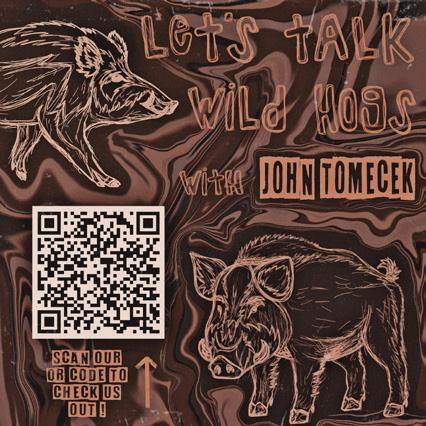
Wild Pigs
by Gaby Olivas
These are some of the original artwork that I create for each episode of A Talk on the Wild Side podcast produced by the Caesar Kleberg Wildlife Research Institute. The artwork is used to promote the episode on social media.
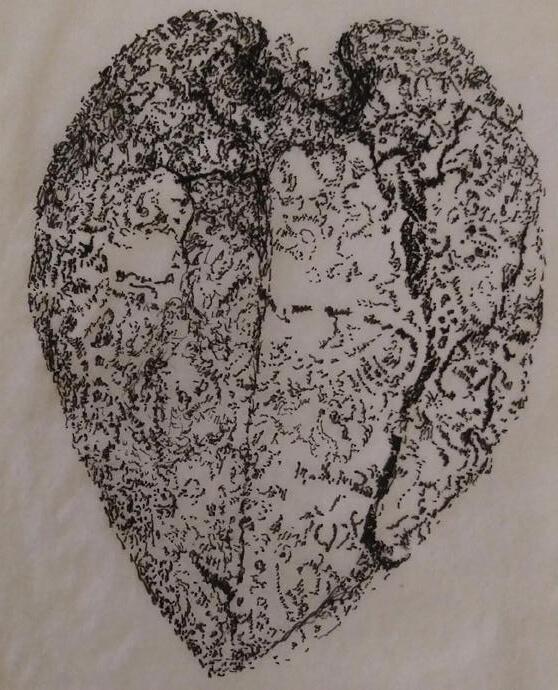
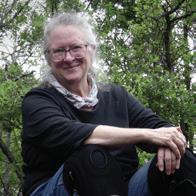
Broken Steinkern
by C. Downs

Who am I?
by Antonio Maldonado
Garden Snake
by Luis Cortés
There they are, what chance, what luck, With this bright fruit I shall corrupt, And His plan interrupt.
Or, was I accounted for? Is He progenitor of all gore To come henceforth in our present lore?
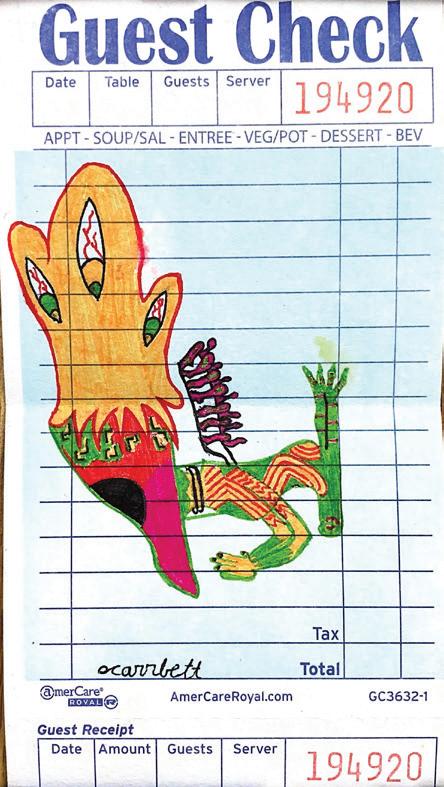
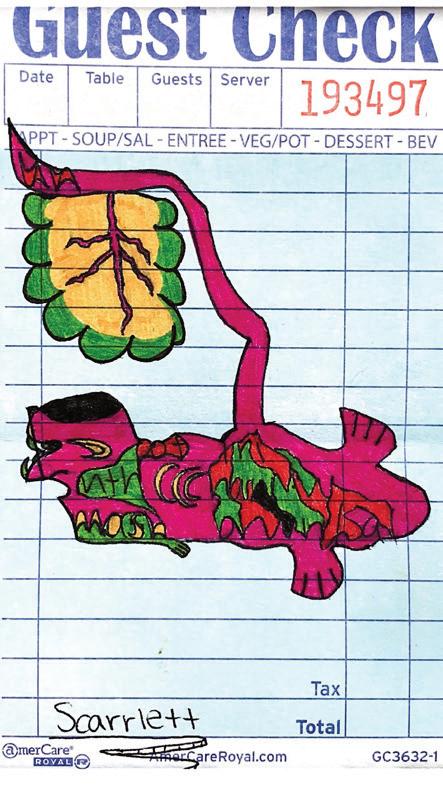

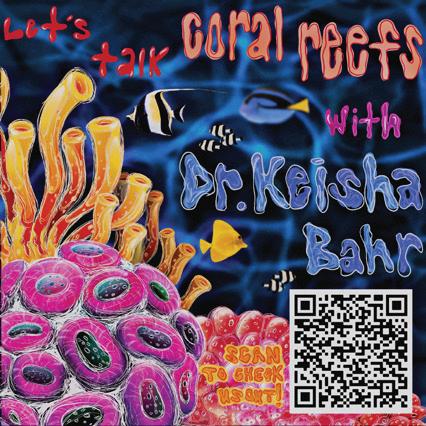
Coral Reef
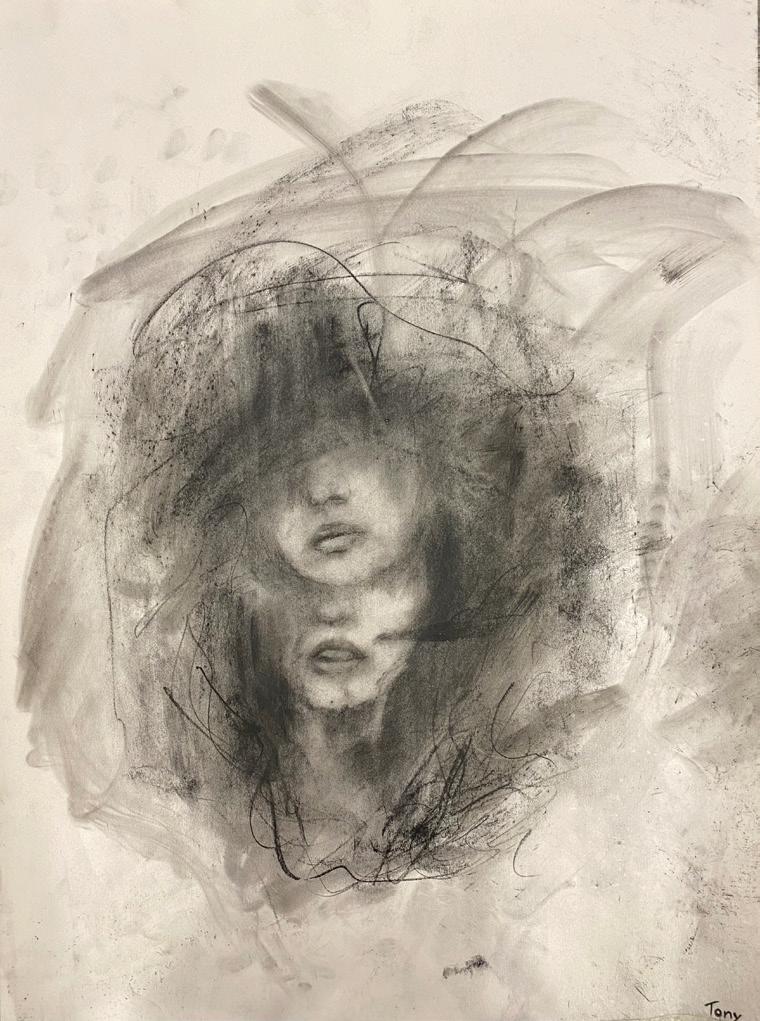
No, it is I and my Will to do this now, To show them how to lie And how rich it seems to die.
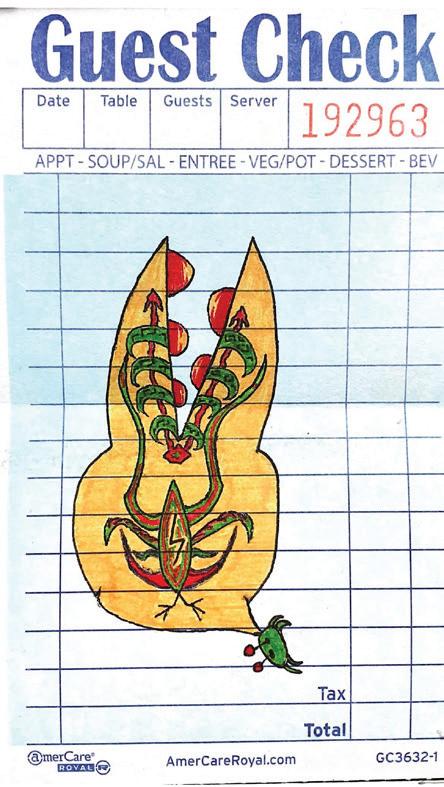
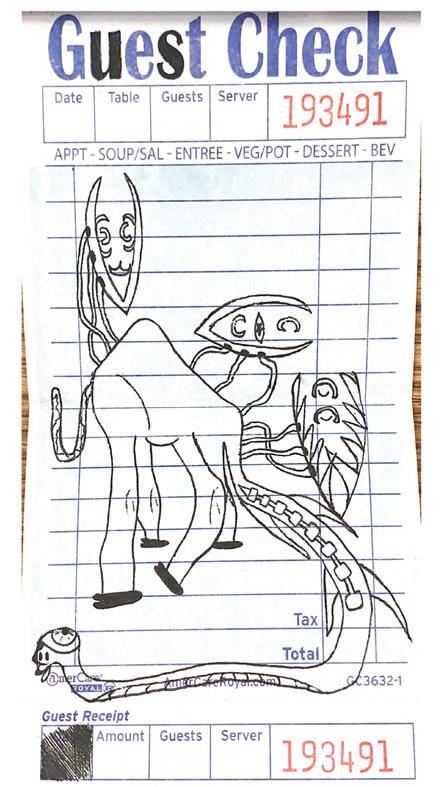
Scarrlett Hammond
Antonio Maldonado is 1st place winner of The Javelina Express sketch/doodle/ drawing award.
Contributor Bio-Notes:
Poetry
AGUSTIN OMAR PEREZ is an honors student who is majoring in Electrical Engineering with a concentration in Power Generation and minoring in Philosophy. He is also President of Tau Beta Pi, the Engineering Honor Society. When he is not busy with coursework and club activities, Agustin enjoys reading, writing poems, and spending time with his family.
DARIANA JIMÉNEZ, from Weslaco, Texas, is a senior at TAMUK and hopes to graduate in the Fall of 2023. She is an Interdisciplinary Studies major with a bilingual supplement. Her calavera is a memoir of her late father who passed away five years ago. She wanted to take her readers through some of her father’s life journeys in poem form. He was her greatest joy, motivation, and hopes to make him proud of his daughter.
ELEANOR SPARKS has been writing since she was nine years old. She enjoys writing fiction for the most part, though if she eats enough jellybeans, she can knock out an English paper pretty quickly. She is currently writing a book and hopes to publish it soon.
JOSHUA PEREZ is an honor student and a sophomore at Texas A &M University-Kingsville. He is studying to become a veterinarian, for he possesses a deep affection for all animals, especially dogs. Although he writes an occasional poem, he spends most of his spare-time reading, caring for his pets, philosophizing with family members, and playing video games.
LUIS CORTÉS obtained his Ph.D. in Literature at the University of California San Diego. He is currently an Assistant Professor of Cultural Studies and American Literature of the U.S. at Texas A&M University - Kingsville. Luis Cortés is the son of formerly undocumented migrants and is a first-generation Chicano graduate.
MYRKA A. GONZALEZ was born on January 12, 2002, in Mission, Texas. She comes from a Mexican family from the state of Tamaulipas. She is a Junior at Texas A&M University-Kingsville pursuing a B.S in Animal Science Pre-Vet and B.A in Spanish.
Short Stories
EMMA HALL heard many stories about the spirit of the red bird since they arrived in South Texas. It was always an inspiring story and they decided to write their version of it.
LEONEL J. RAMIREZ grew up in the RGV and spent most of his childhood mending fences, chasing cows, riding horses, digging holes, making treehouses, and hunting birds. He has an unhealthy obsession with
Jeeps and has worked as a mechanical engineer, teacher, special education counselor, educational diagnostician, assistant principal, and special education coordinator.
VIV. E is a TAMUK student and Kingsville native who has always liked to write (with the exception of a boring essay or two). Though tough at times, the written word has allowed her means of greater expression, even if it is just to tell a story about cats.
ANDREA MARIE GONZALEZ is a senior at TAMUK, majoring in English with a minor in political science. Andrea enjoys writing poetry and short stories, drawing inspiration from the genres of horror and fantasy-fiction.
Non-fiction
CHAZNEE WYRICK is a graduate student in the Communication Sciences and Disorders Department at TAMUK. She would like you to check out the CSDO Clinic and Department in Manning Hall, 108.
REBECCA ZERLIN is a Graduate Research Assistant in the Caesar Kleberg Wildlife Research Institute at Texas A&M University-Kingsville. She is currently finishing her project looking at how prescribed burning impacts butterflies in South Texas.
RICK MACHEN is Professor & Paul C. Genho Endowed Chair in Ranch Management in the King Ranch® Institute for Ranch Management at TAMUK. He works closely with graduate students, teaches graduate classes, and cooperates in the development and conduct of KRIRIM outreach education events.
Artwork
ANTONIO MALDONADO, or Tony, is a 21-year old male who recently changed his major from Psychology to Fine Arts at TAMUK, and it was the best decision he has made!
ASHLEY JANNETT NAVARRO is a Javelina alumna who enjoys painting, graphic design, and is chronically exhausted.
C. DOWNS, whose Ph.D. is in American Literature, taught in the Department of Language and Literature at TAMUK for 25 years. Her poems appear in Blue Hole, the Texas Poetry Calendars, and in VIA publications. She is currently taking courses toward a B.S. in geology.
DANIELLE K. MARTINEZ is a senior at Texas A&M University-Kingsville majoring in Bio-Medical Sciences. She has always had a passion for traveling and photography. After graduation, she plans on continuing her education and fulfilling her career contract in the US Army. She will continue her
photography to hopefully be in a wildlife museum one day.
FULDEN is Associate Professor in the department of Art, Communications & Theater at Texas A&M University-Kingsville. Drawing upon her cosmopolitan background, Fulden fuses influences from the East and West in her art with clay.
GABY OLIVAS is an undergraduate art major from Eagle Pass, TX. She works for A Talk on the Wild Side podcast that is produced by the Caesar Kleberg Wildlife Research Institute.
LAURI SULEWSKI has a B.A in psychology. She loves going on adventures with her dog. She is currently in graduate school for clinical mental health to become a therapist and is interested in life coaching. She enjoys watching the shows Little House on the Prairie and The Middle.
MATTHEW THONSGAARD is a graduate student in mechanical engineering at TAMUK. He grew up on a small ranch outside El Campo and was homeschooled up until college. Aside from reading and pencil drawing, he also enjoys playing the piano, building projects that range from woodworking to arduino robots, and occasionally launching potatoes across the pasture with a hairspray-powered cannon.
RICK MILLER received his doctorate from Northwestern University. He has taught at Georgetown University, University of Cologne, University of Nebraska-Kearney, and served as director of the Community Learning Center in Mallorca, Spain. He has received four national awards for teaching and is currently Piper Professor of Psychology at TAMUK.
RYAN SINGH PAUL teaches English literature, plays guitar, and sometimes draws colors and shapes on paper.
SARAH MOSHIER started photography back in 2010 for a high school class and developed a passion for it. She loves being outdoors, taking in its beauty and animals, so she combined the two passions together.
SERGIO ORTIZ was born in Kingsville, Texas. He is a TAMUK undergrad and graduate alumni and is currently a doctoral student and employee at the university.
SCARRLETT HAMMOND, sex (both), favorite food (noodles), currently (expressing love).
Meet the Editorial Team
YDALIAH DELGADO (Social Media and Marketing Campaign Manager)
ANDREA M. GONZALEZ (Editorial Coordinator)
MCKINNA ALLEN
VICTORIA C. PINA (Treasurer)
LESLIE M. CARIAGA
JOSEPH MEDINA
WILLIAM A. MCKELLIPS
REBECCA A. CHAPA
Meet the Advisors
ANIRUDDHA MUKHOPADHYAY (Editorial Advisor)
ASHLEY JANNETT NAVARRO (Graphic Design Artist and Advisor)
ROBERTO VELA CÓRDOVA
CATHY DOWNS
Theme for Next Issue:
Please note the theme for the next issue of The Javelina Express scheduled for Spring 2023: La Familia. Family is important to Javelinas, in happiness and in grief, in our successes and in our struggles. Después de todo, la comunidad Javelina es una familia unida por todas las familias Javelinas.
If you have stories, poems, essays, or artwork, please email them to us at javelina.express@tamuk.edu. We will also consider creative work beyond the theme.
Please continue sending us your sketches and doodles. But for Issue 3, we will have a competition for the 3 best family-themed poems in English or Spanish. These 3 poems will receive special mention in the third issue and prizes.


The Javelina Express is available free-of-cost to the Javelina Community in print and in digital format. If you would like to be added to the mailing list for a print copy, or the listserv for digital distribution, please email us at javelina.express@tamuk.edu.
If you would like to support the running of the magazine with a donation, please contact Dr. Roberto Vela Córdova, Chair of the Department of Language and Literature, at 361-593-2518 or by email at roberto.vela@tamuk.edu.
If you enjoyed the stories, poems, and artwork in this issue, and would like to write to the author, please email your letter to javelina. express@tamuk.edu clearly identifying the piece and the author. We will forward your letter after review.
